Chris Cornell Quotes


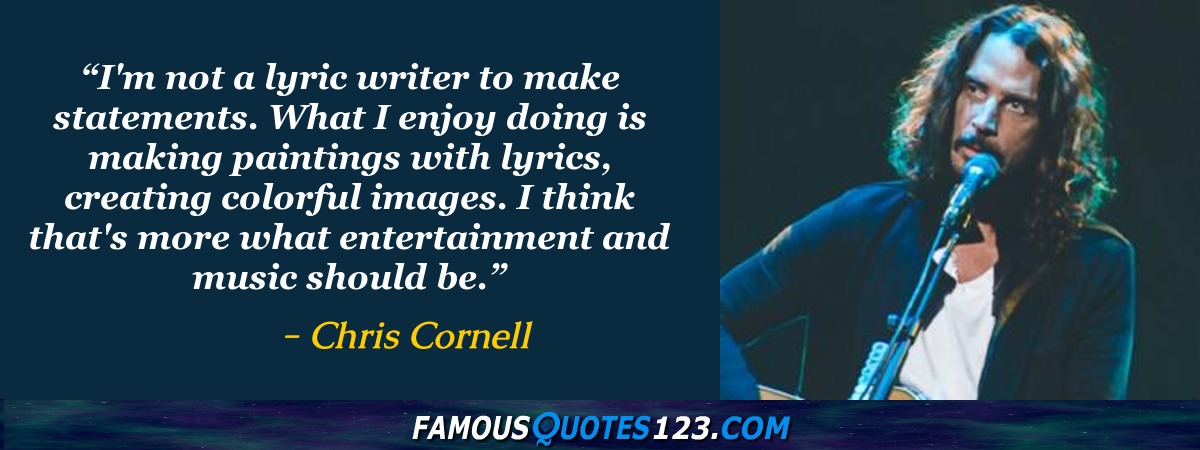
I'm not a lyric writer to make statements. What I enjoy doing is making paintings with lyrics, creating colorful images. I think that's more what entertainment and music should be.
I think Freddie Mercury is probably the best of all time in terms of a rock voice. There was a vulnerability to it, his technical ability was amazing, and so much of his personality would come out through his voice. I'm not even a guy to buy Queen records, really, and I still think he's one of the best.
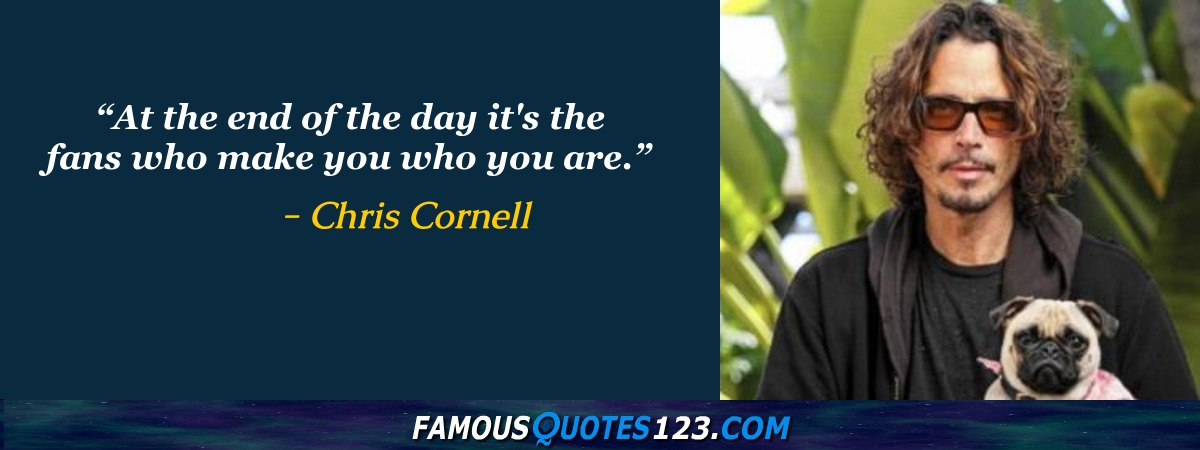
At the end of the day it's the fans who make you who you are.
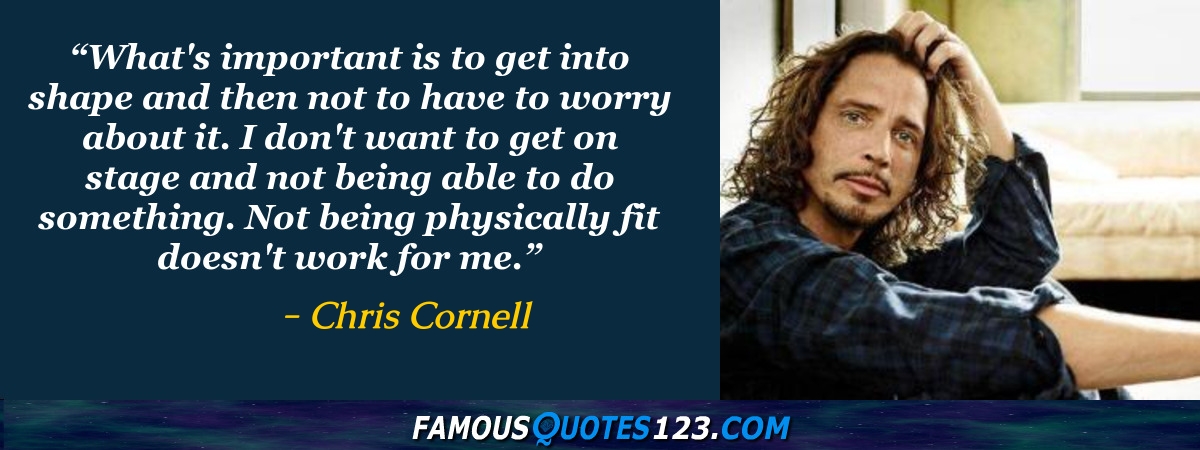
What's important is to get into shape and then not to have to worry about it. I don't want to get on stage and not being able to do something. Not being physically fit doesn't work for me.
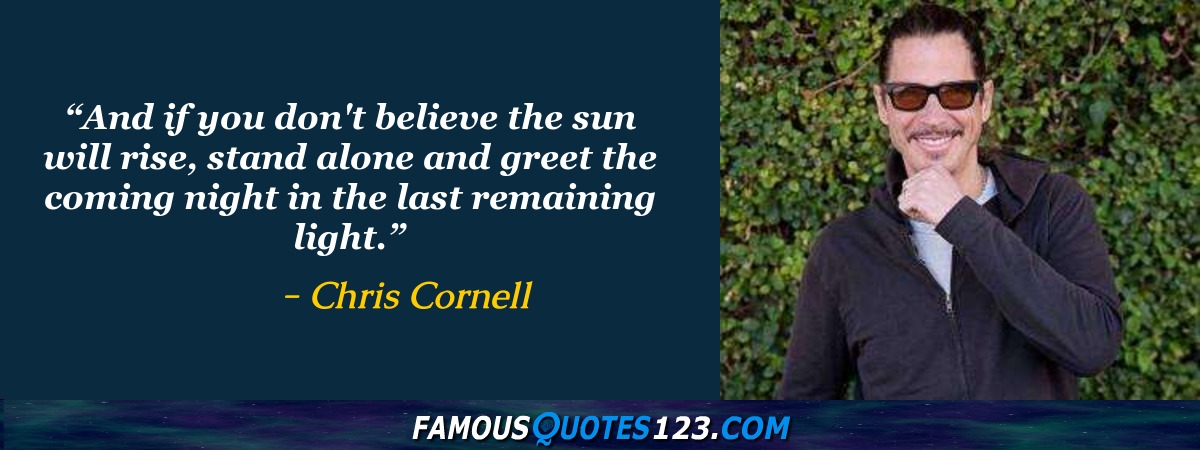
And if you don't believe the sun will rise, stand alone and greet the coming night in the last remaining light.
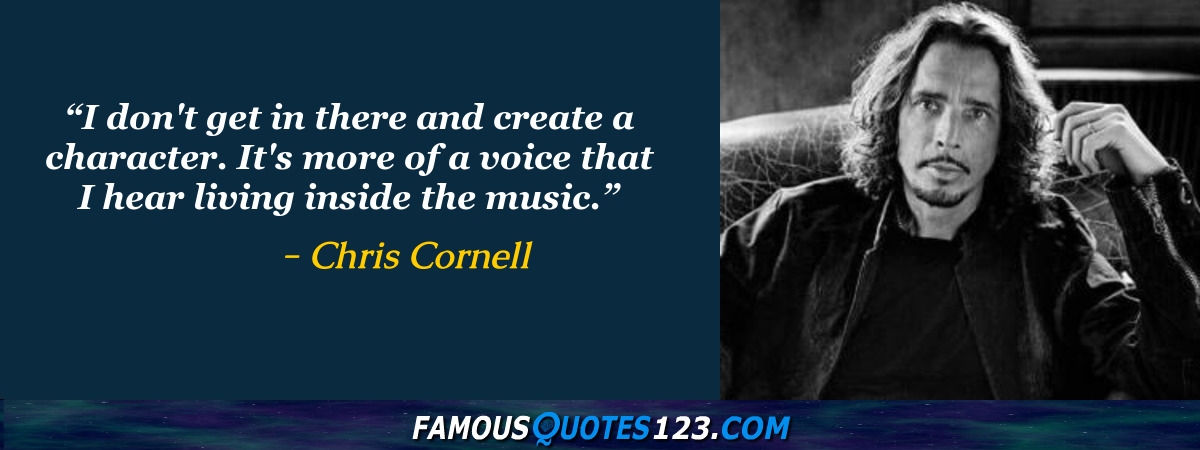
I don't get in there and create a character. It's more of a voice that I hear living inside the music.
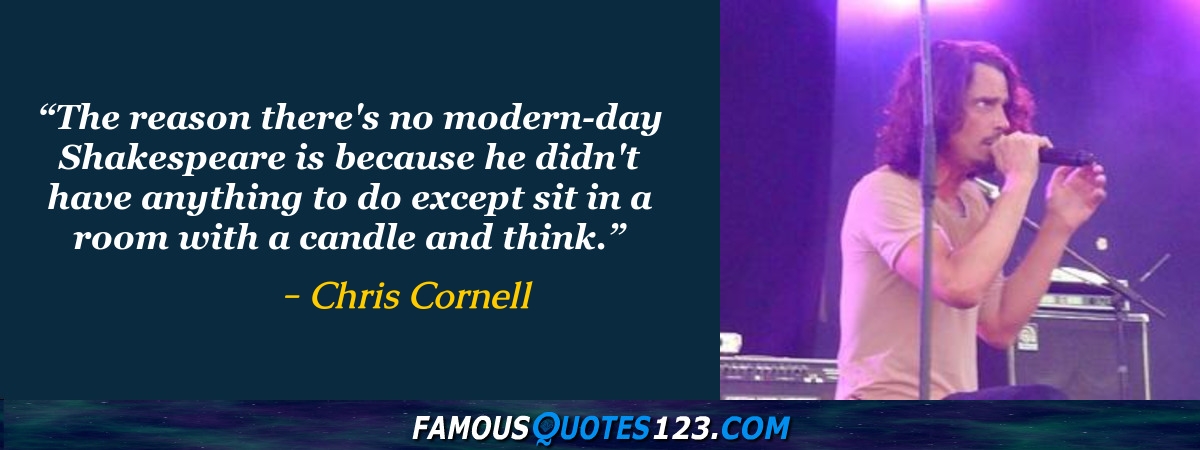
The reason there's no modern-day Shakespeare is because he didn't have anything to do except sit in a room with a candle and think.
The idea of telling the story of the Armenian genocide - or, really, any other genocide - and repeating those stories is really important. I also think it's important to always be exposing the warning signs for what was leading up to it. Those tend to always be the same.
You sometimes get the feeling that people think getting back together after a hiatus to write and record a record is work, you know, arduous and unpleasant. Being able to write and record - that's a privilege. I don't forget the long days I spent working in a restaurant, when I wanted to be done so I could go home and work on a song.
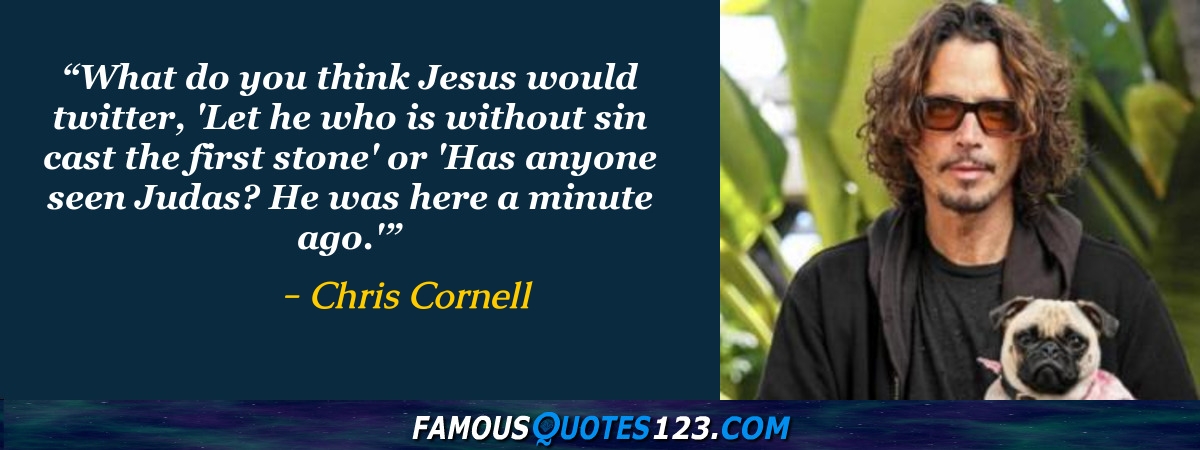
What do you think Jesus would twitter, 'Let he who is without sin cast the first stone' or 'Has anyone seen Judas? He was here a minute ago.'
I never went to high school. I never really finished eighth grade. I was kicked out of seventh grade once and eighth grade twice. Mainly for not showing up and not doing it. Then I went to an alternative high school for part of what would have been ninth grade and part of what would have been 10th grade.
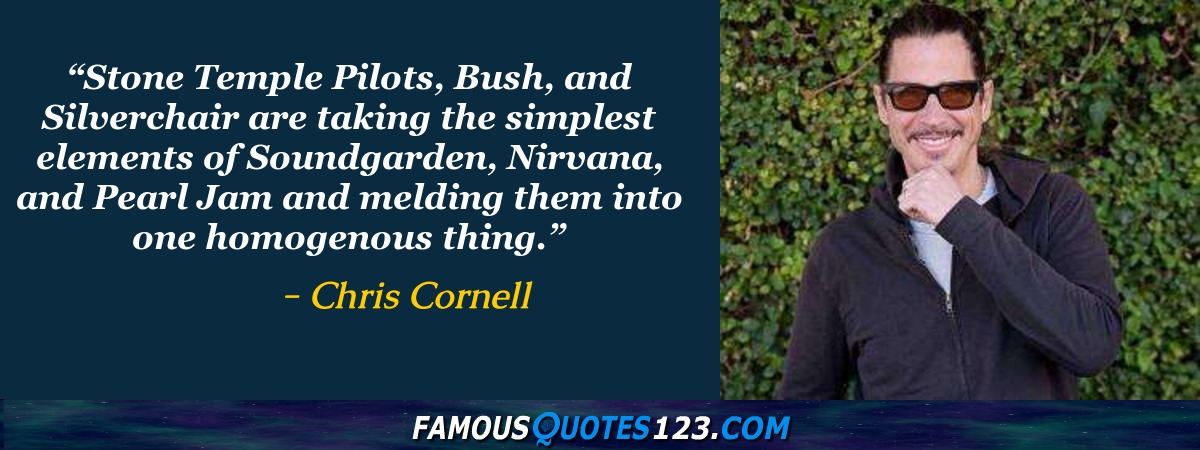
Stone Temple Pilots, Bush, and Silverchair are taking the simplest elements of Soundgarden, Nirvana, and Pearl Jam and melding them into one homogenous thing.
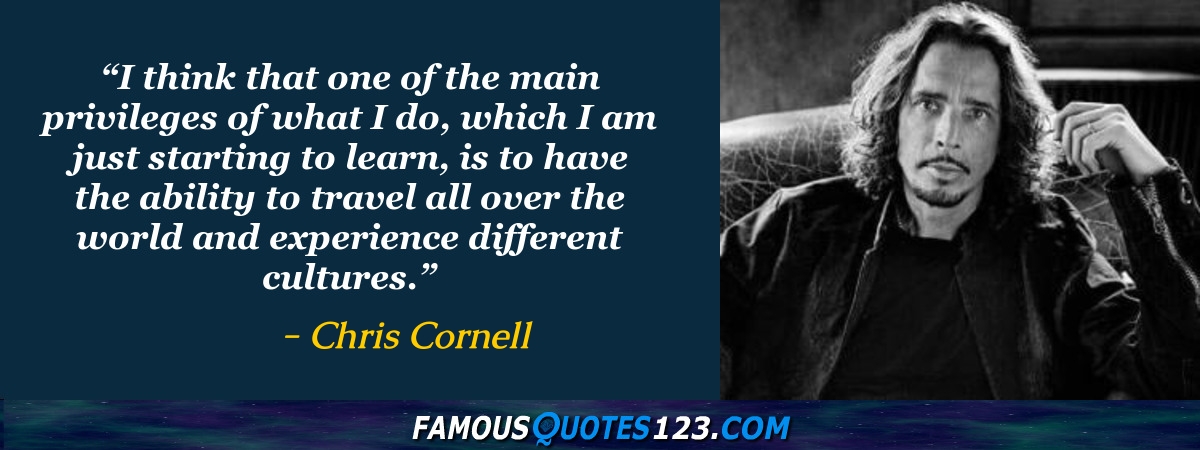
I think that one of the main privileges of what I do, which I am just starting to learn, is to have the ability to travel all over the world and experience different cultures.
One of the main dilemmas that's pretty common to a lot of people who are getting older is the idea that maybe there's a finish line and that maybe there's a time in your life when you start to slow down and stop and smell the roses and just kind of settle into what will be a comfortable period in your life.
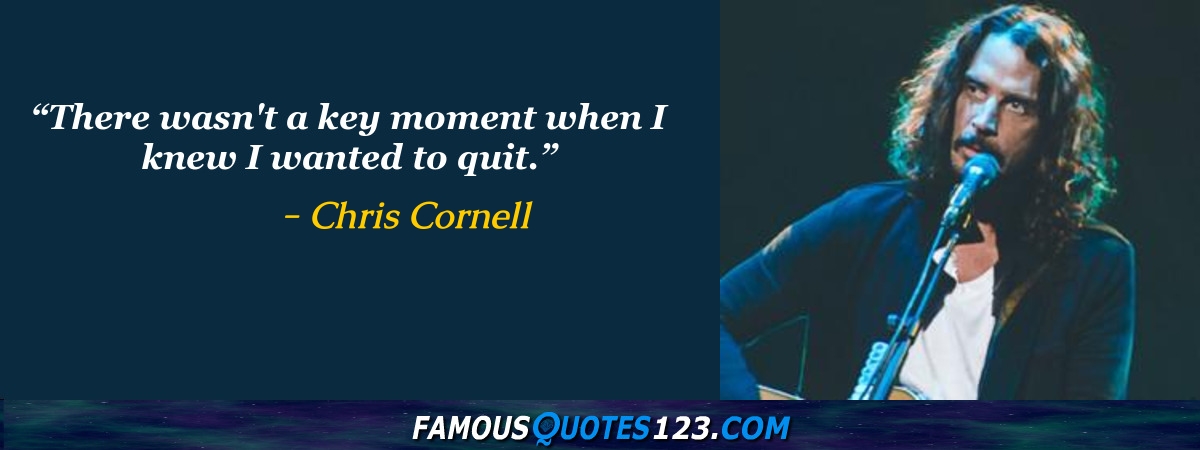
There wasn't a key moment when I knew I wanted to quit.
My favorite Bob Dylan record is the very first one where he sings one Bob Dylan song and the rest of them are his interpretations of the Dust Bowl-era folk songs, or even going back as far as the mass influx of people coming into the U.S. during the gold rush. His interpretations of those songs are incredible.
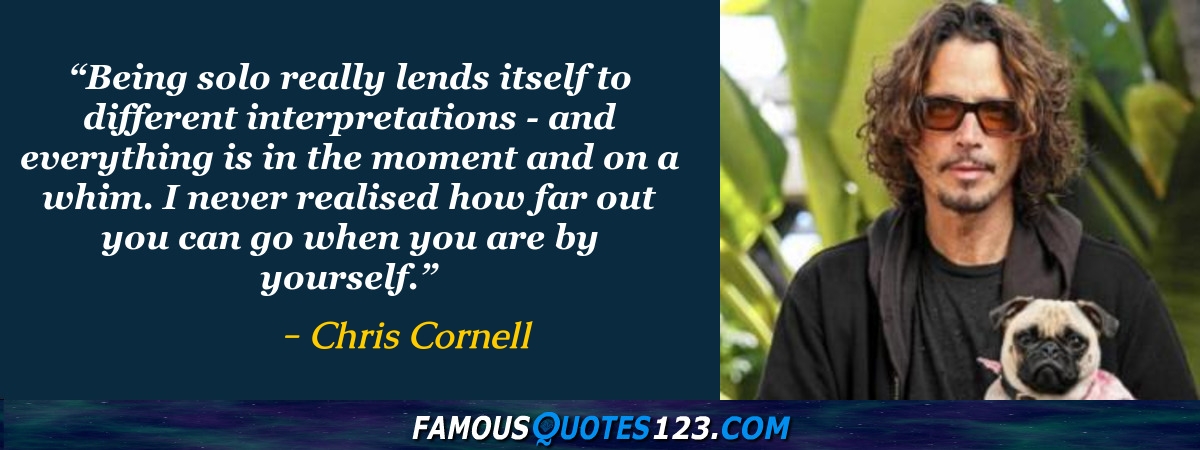
Being solo really lends itself to different interpretations - and everything is in the moment and on a whim. I never realised how far out you can go when you are by yourself.
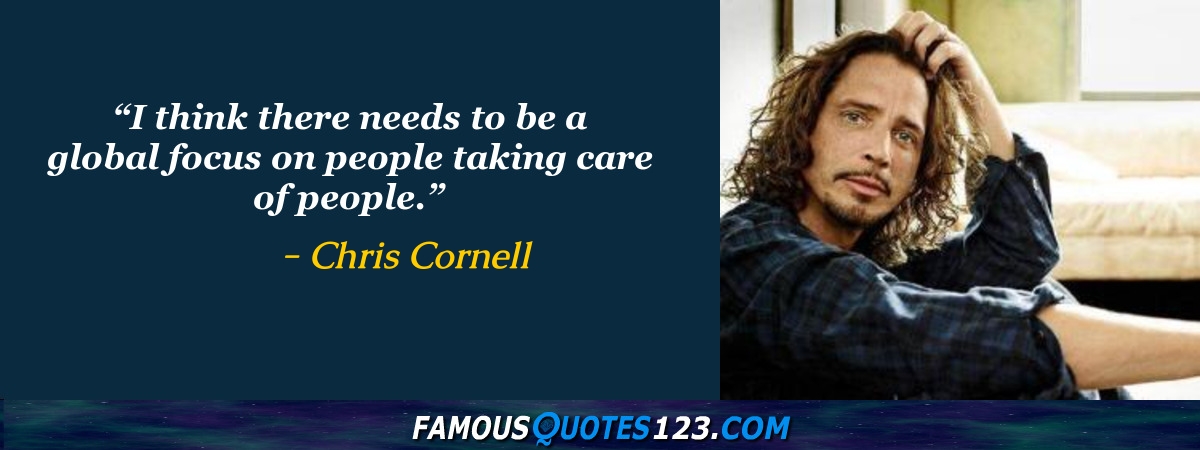
I think there needs to be a global focus on people taking care of people.
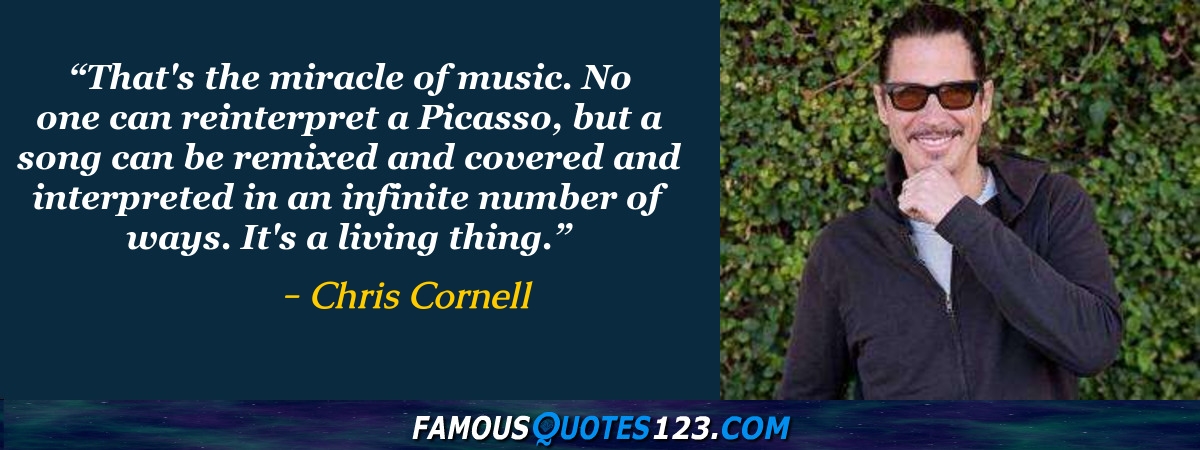
That's the miracle of music. No one can reinterpret a Picasso, but a song can be remixed and covered and interpreted in an infinite number of ways. It's a living thing.
'The Beatles' did whatever they wanted. They were a collection of influences adapted to songs they wanted to write. George Harrison was instrumental in bringing in Indian music. Paul McCartney was a huge Little Richard fan. John Lennon was into minimalist aggressive rock.
If you wanna make money in music, you're better off being on the business end of it a lot of the time. And also as a musician, if you do make money, it means you had to bite and scratch and kick the whole way to not get ripped off, because at every corner, there's somebody there waiting to trip you up and take a bigger chunk.
A lot of people get into alternative music as part of their identity. It's something that isn't the mainstream, that their brothers and sisters don't know about, and that their parents don't like. It's something they can have as their own.
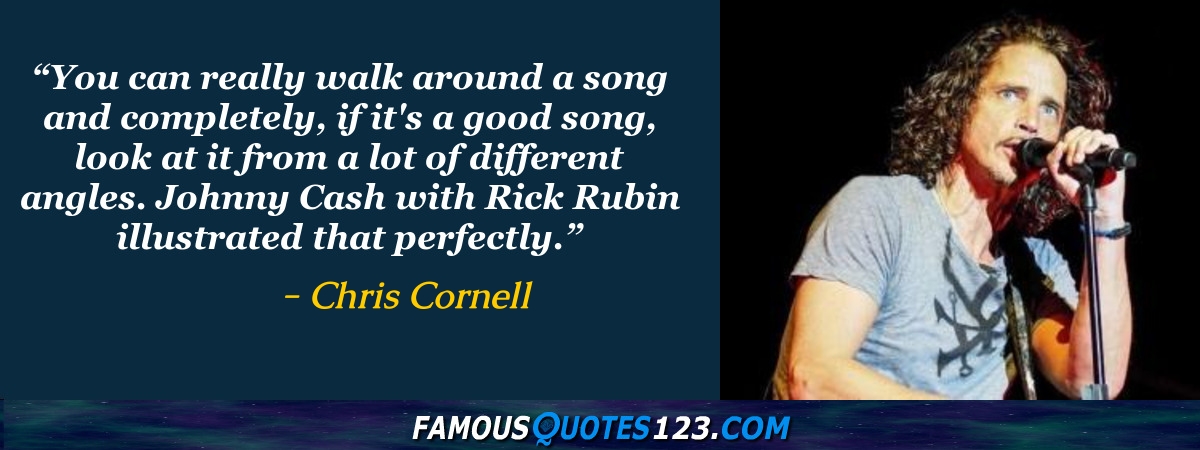
You can really walk around a song and completely, if it's a good song, look at it from a lot of different angles. Johnny Cash with Rick Rubin illustrated that perfectly.
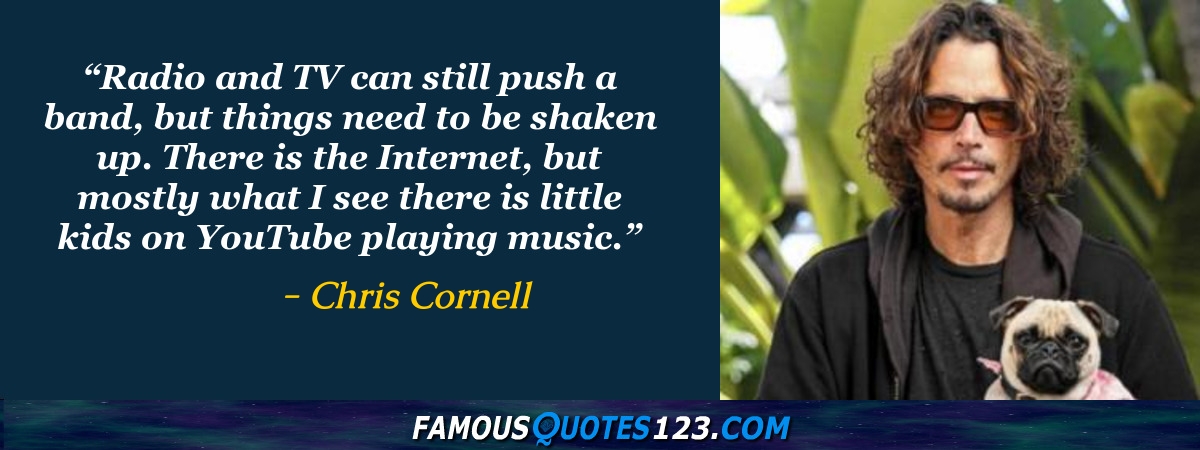
Radio and TV can still push a band, but things need to be shaken up. There is the Internet, but mostly what I see there is little kids on YouTube playing music.
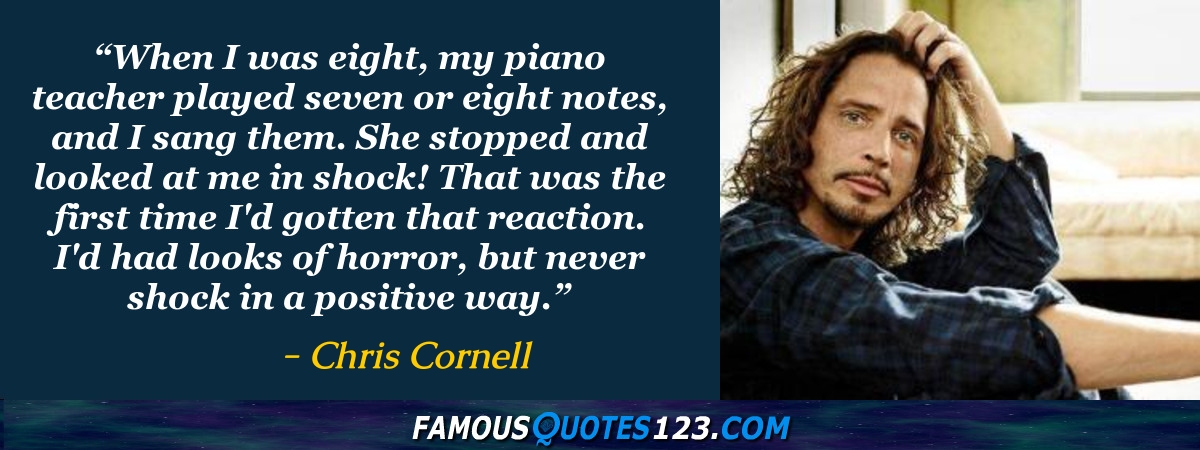
When I was eight, my piano teacher played seven or eight notes, and I sang them. She stopped and looked at me in shock! That was the first time I'd gotten that reaction. I'd had looks of horror, but never shock in a positive way.
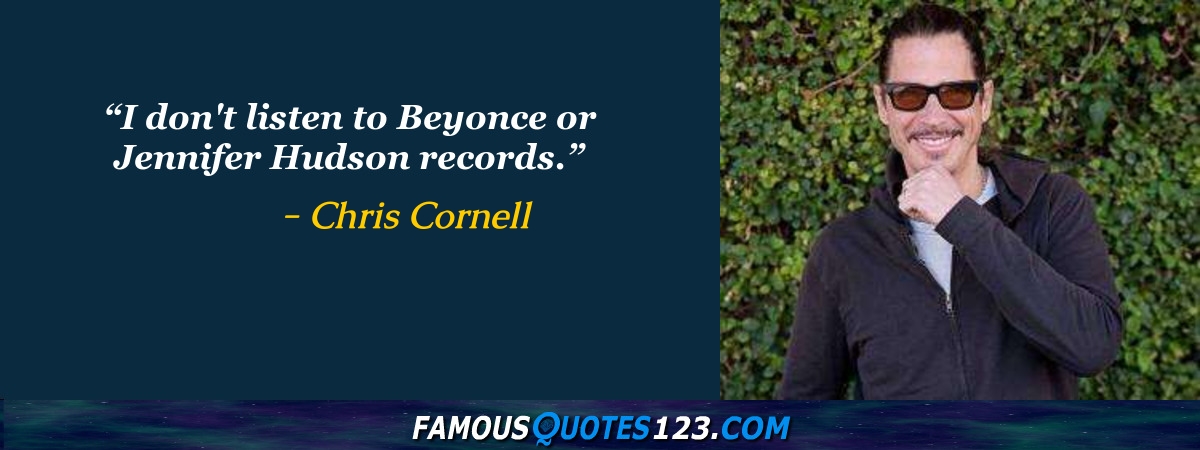
I don't listen to Beyonce or Jennifer Hudson records.
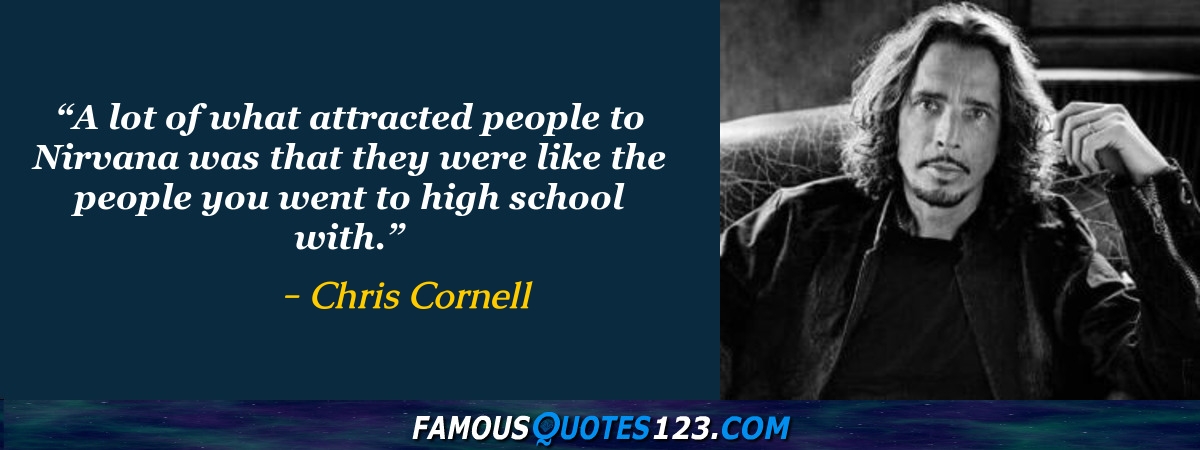
A lot of what attracted people to Nirvana was that they were like the people you went to high school with.
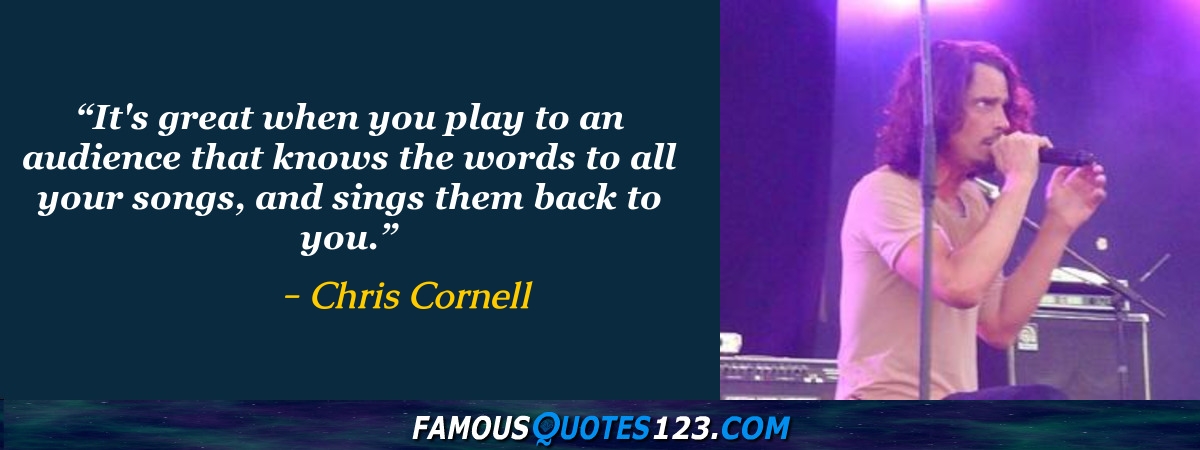
It's great when you play to an audience that knows the words to all your songs, and sings them back to you.
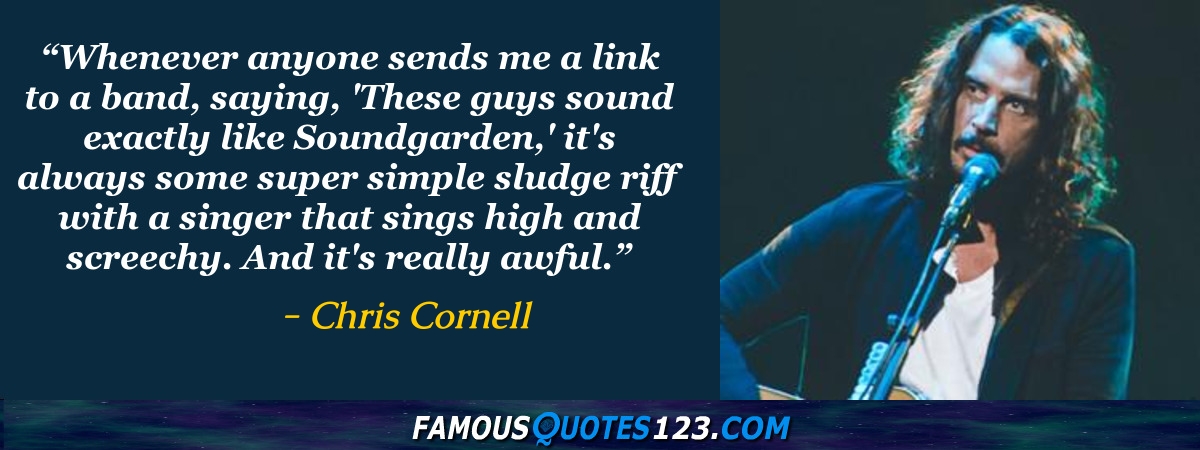
Whenever anyone sends me a link to a band, saying, 'These guys sound exactly like Soundgarden,' it's always some super simple sludge riff with a singer that sings high and screechy. And it's really awful.
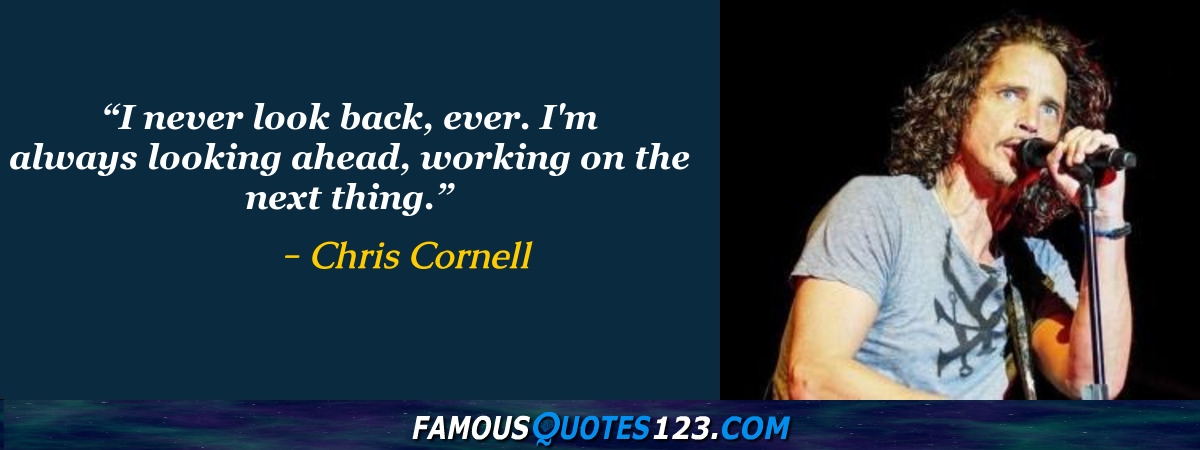
I never look back, ever. I'm always looking ahead, working on the next thing.
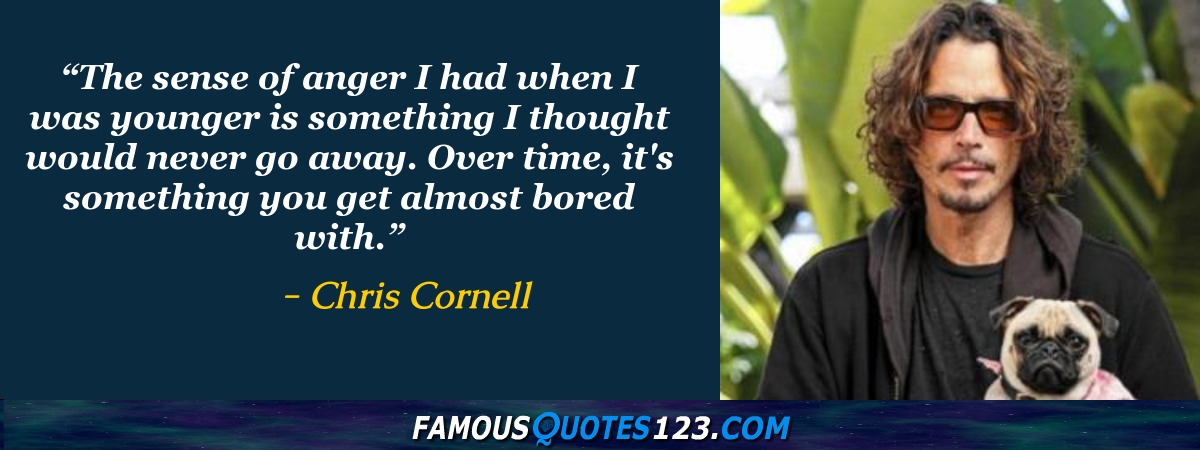
The sense of anger I had when I was younger is something I thought would never go away. Over time, it's something you get almost bored with.
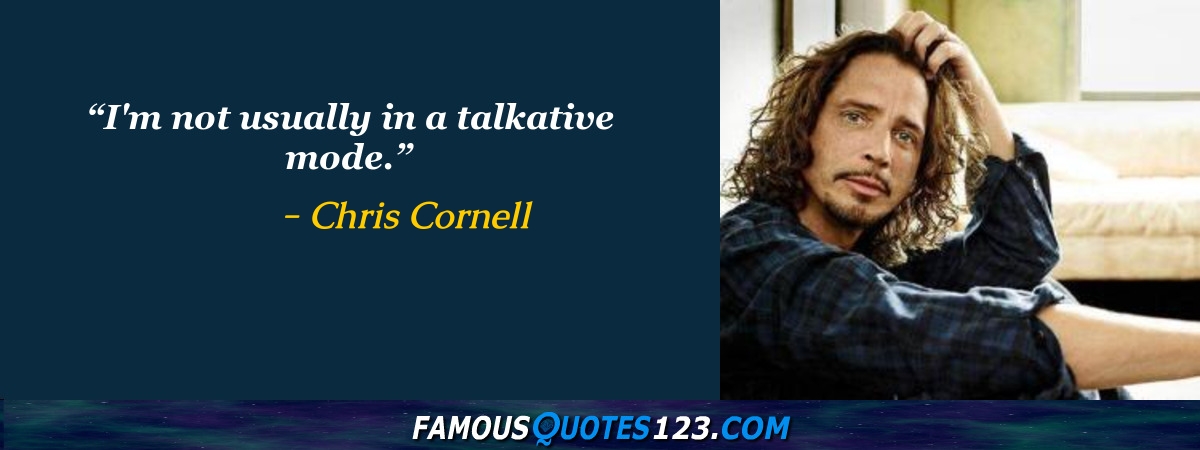
I'm not usually in a talkative mode.
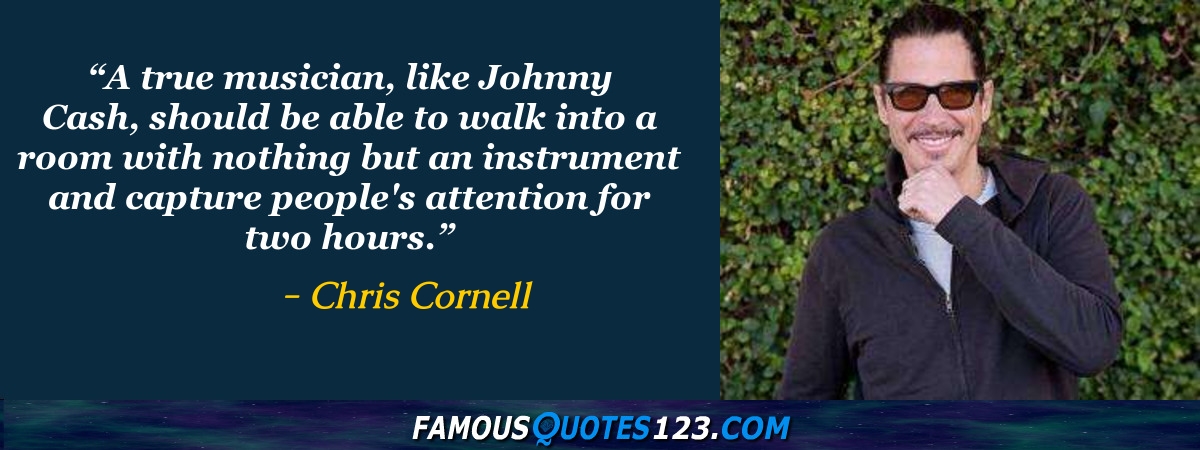
A true musician, like Johnny Cash, should be able to walk into a room with nothing but an instrument and capture people's attention for two hours.
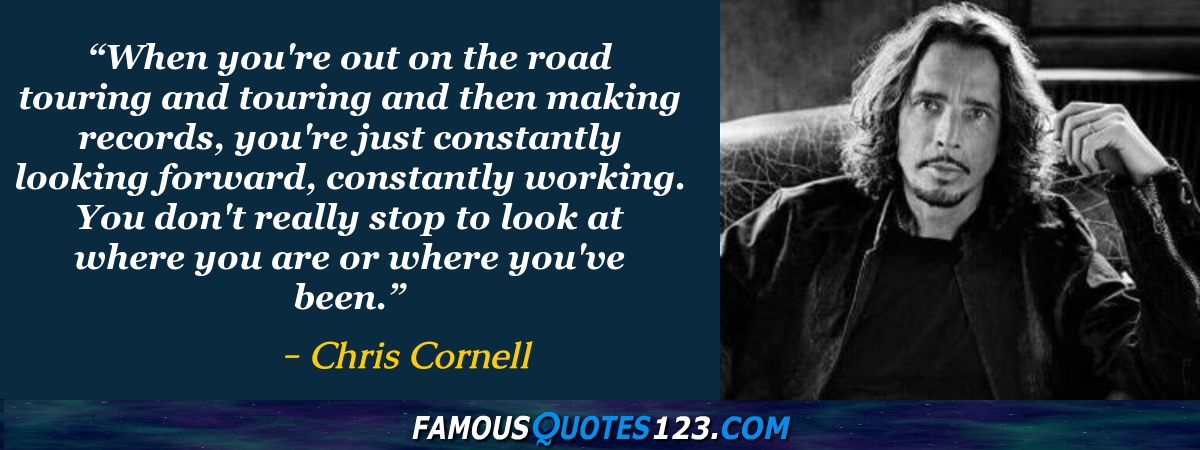
When you're out on the road touring and touring and then making records, you're just constantly looking forward, constantly working. You don't really stop to look at where you are or where you've been.
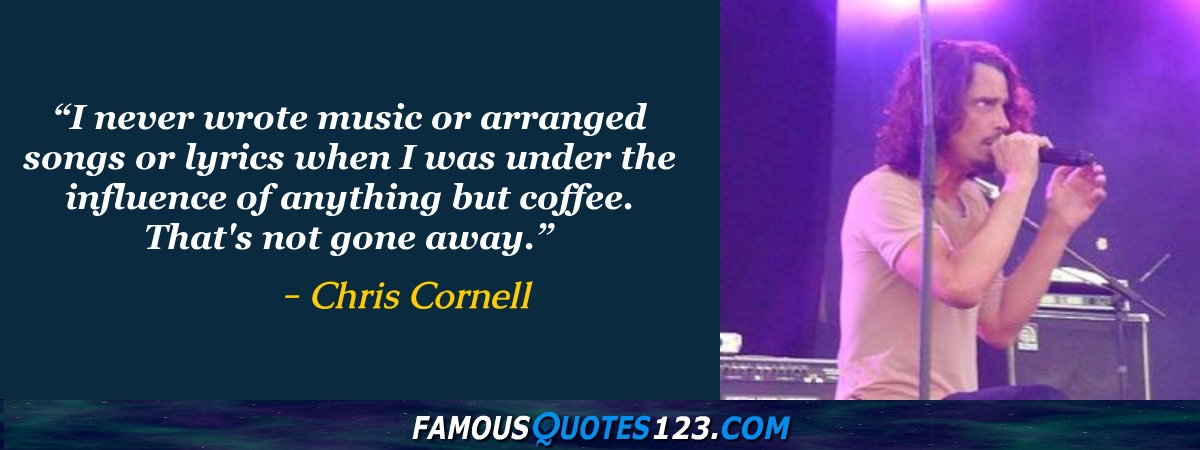
I never wrote music or arranged songs or lyrics when I was under the influence of anything but coffee. That's not gone away.
I've always liked depressing music because a lot of times, listening to it when you're down can actually make you feel less depressed. Also, even though a person may have problems with depression, sometimes you can actually be kind of comfortable in that space because you know how to operate within it.
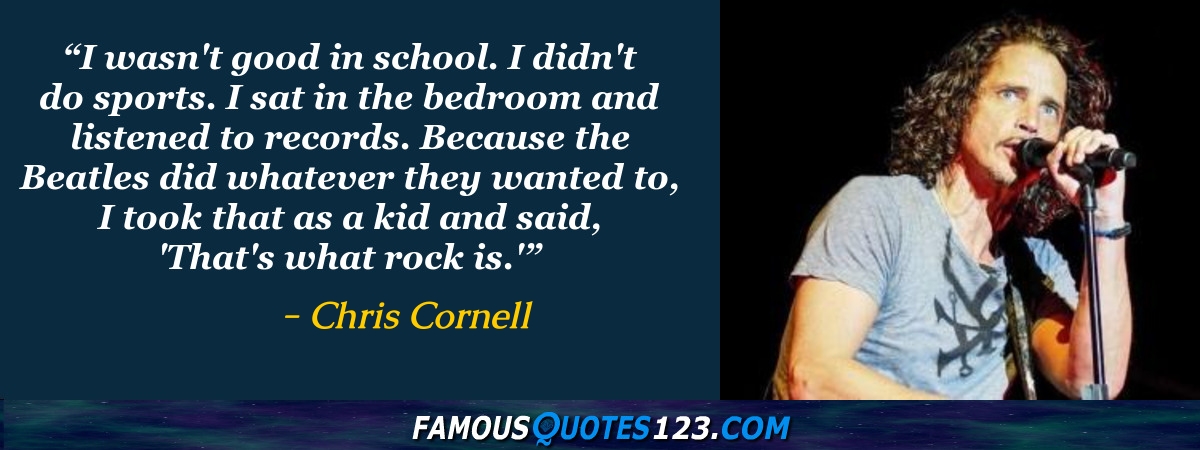
I wasn't good in school. I didn't do sports. I sat in the bedroom and listened to records. Because the Beatles did whatever they wanted to, I took that as a kid and said, 'That's what rock is.'
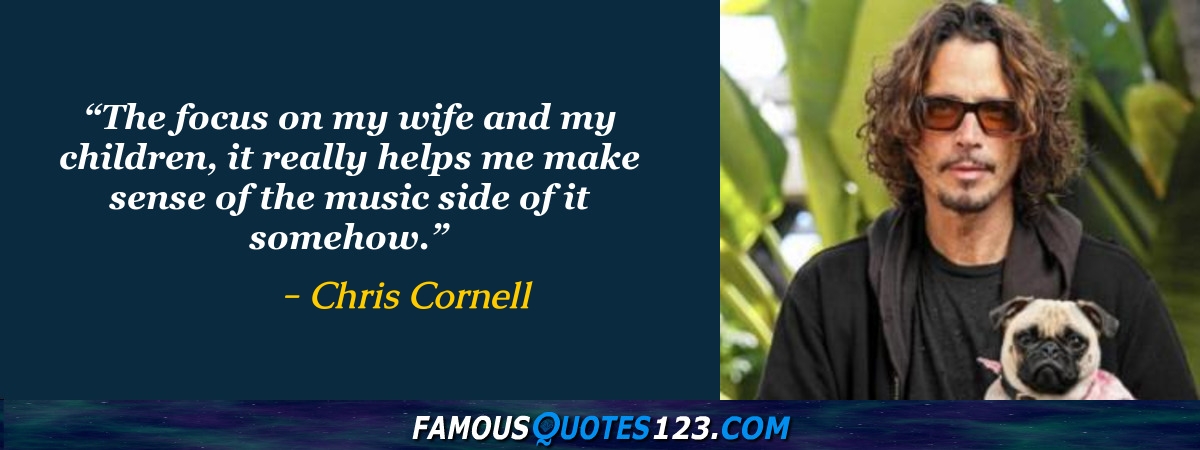
The focus on my wife and my children, it really helps me make sense of the music side of it somehow.
I'm interested in where I'm going and the people I am there to see. Going to Cuba was a great example of that, and the succession of going into Cuba, which is not a very easy place to get into, and playing music for people who have never seen a live rock concert outdoors like that.
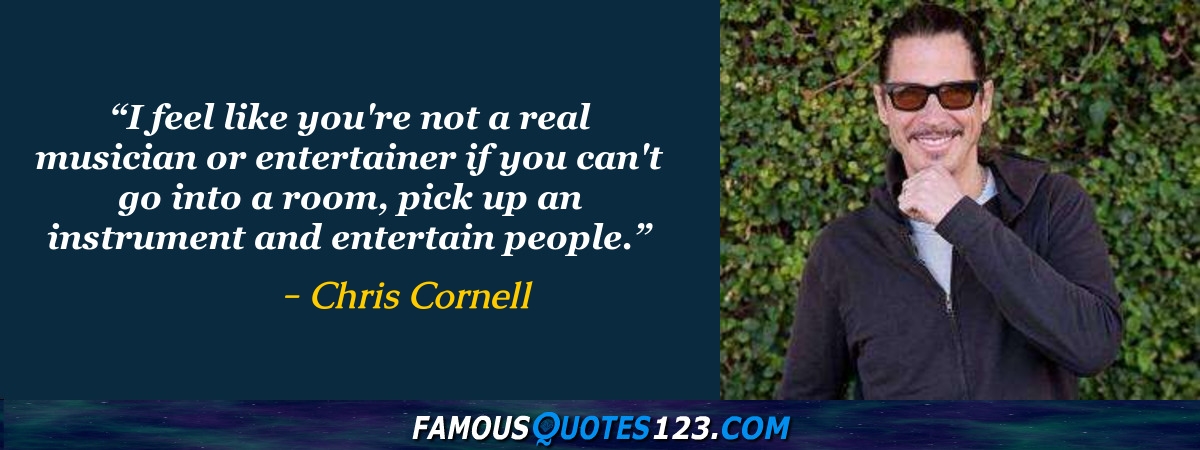
I feel like you're not a real musician or entertainer if you can't go into a room, pick up an instrument and entertain people.
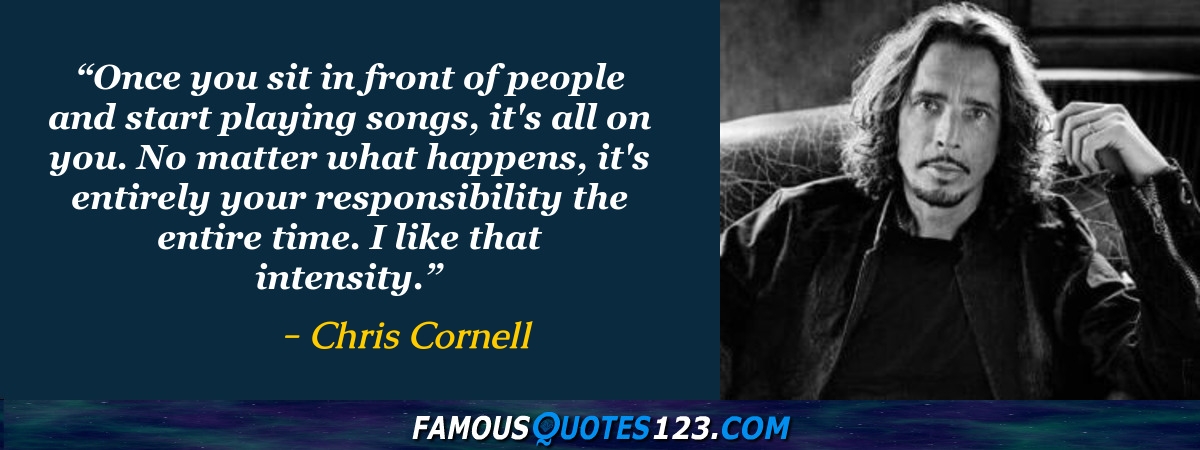
Once you sit in front of people and start playing songs, it's all on you. No matter what happens, it's entirely your responsibility the entire time. I like that intensity.
There's sadness to anyone that dies before their time, and specifically ones that seem to affect people in a positive way. It doesn't matter if it's Whitney Houston or a nameless, faceless person on the street. That's just as big of a tragedy for me.
When I started writing songs for Temple of the Dog, I went to my room with my acoustic guitar, and I was happy staying in that mode. It was more chordal based and more lyric driven. I enjoyed not making riff-based songs built around a guitar idea.
It's about trying to step out of being patterned and closed off and reclusive, which I've always had a problem with. It's about attempting to be normal and just go out and be around other people and hang out. I have a tendency to sometimes be pretty closed off and not see people for long periods of time and not call anyone.
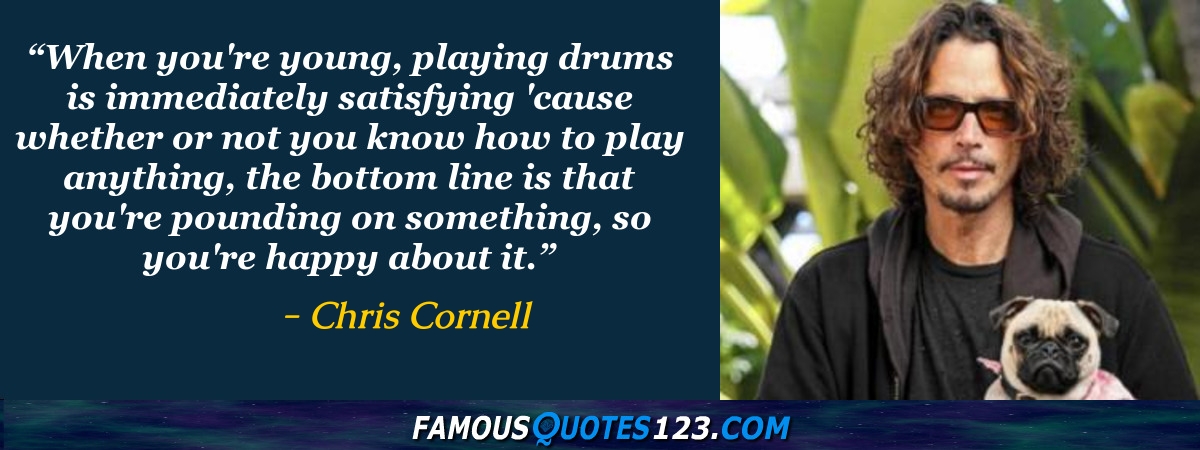
When you're young, playing drums is immediately satisfying 'cause whether or not you know how to play anything, the bottom line is that you're pounding on something, so you're happy about it.
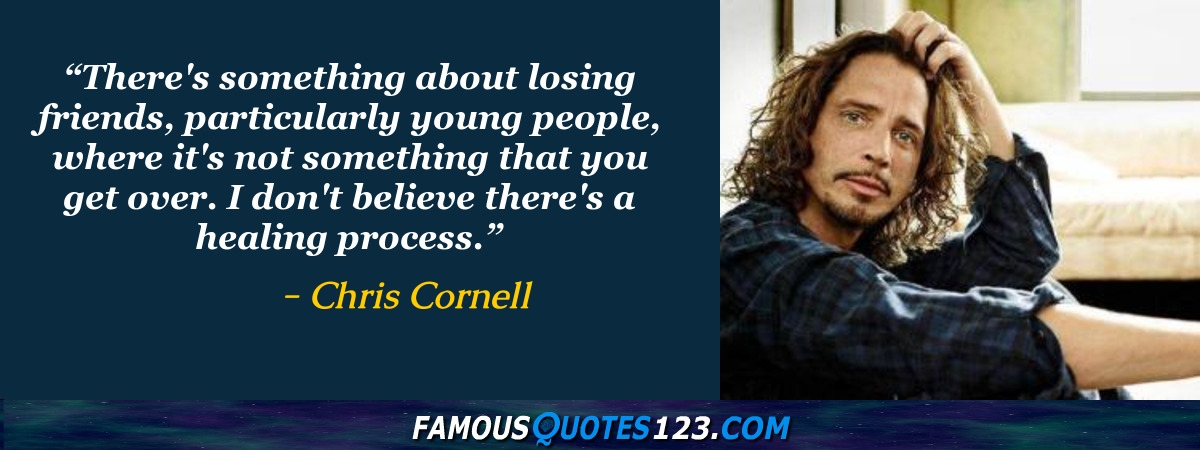
There's something about losing friends, particularly young people, where it's not something that you get over. I don't believe there's a healing process.
When all of a sudden you're successful and sought after overnight, you are instantly opened to a lot of sides of humanity that the average person is never going to see. And those can often be pretty disheartening, and it can make somebody pretty lonely.
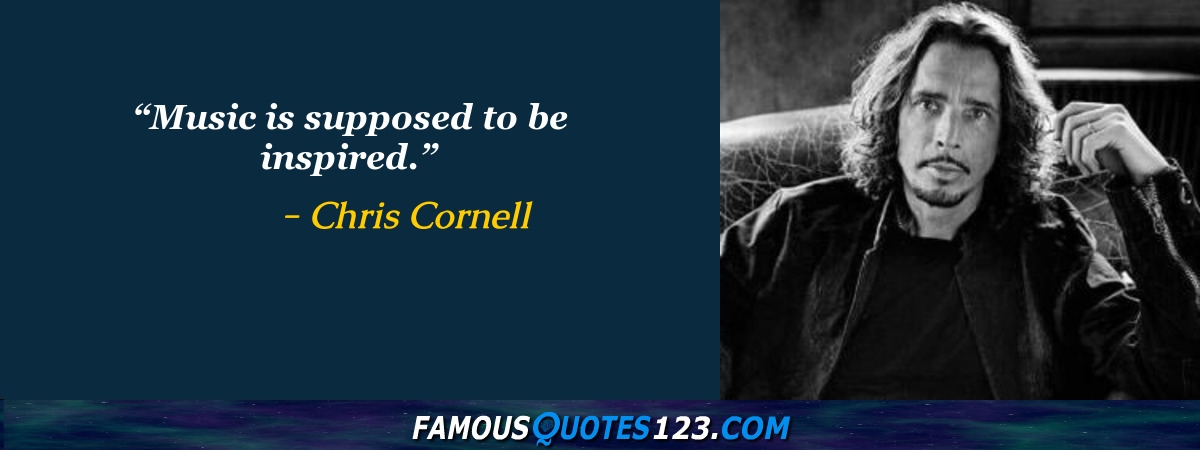
Music is supposed to be inspired.
If I'm going to go out to be a solo artist, it's because I want to do something different without having to wait on someone else's schedule or hobbies or be limited by other people's prejudices. I'd be kind of stupid not to exercise that.
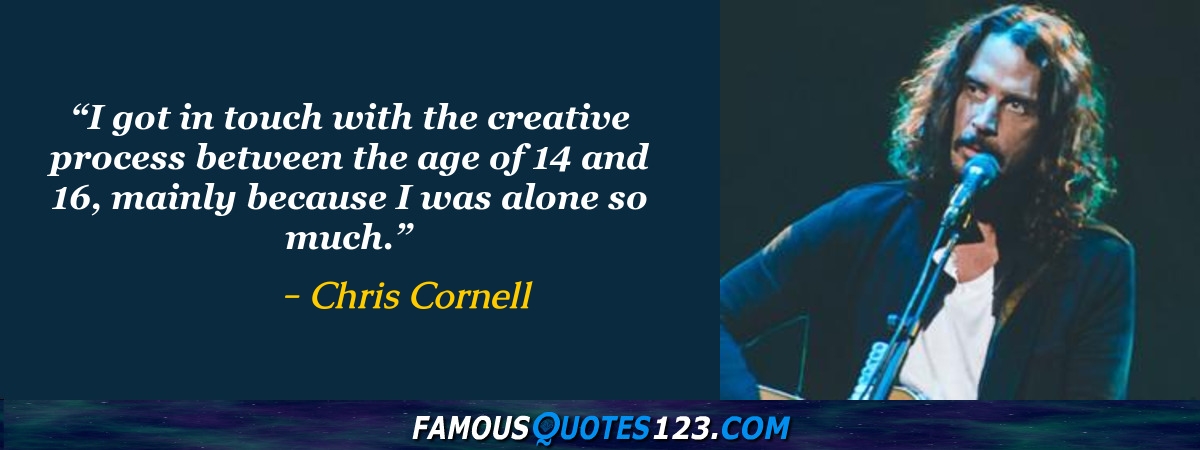
I got in touch with the creative process between the age of 14 and 16, mainly because I was alone so much.
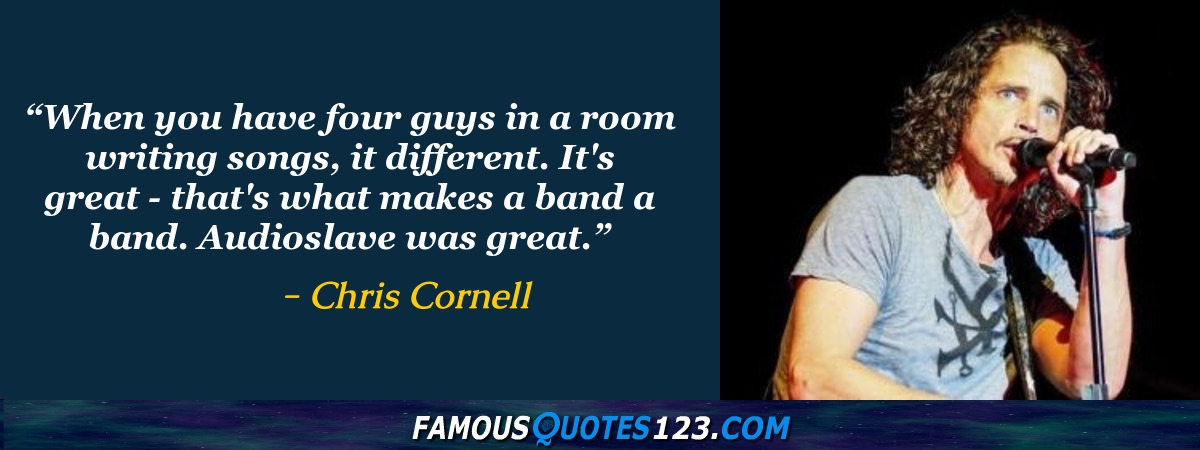
When you have four guys in a room writing songs, it different. It's great - that's what makes a band a band. Audioslave was great.
To me, music shouldn't be ego-driven. When you go out on stage and play songs, it is. But when you're sitting in a room, writing songs, it's a completely different process. It's a completely different place. It's a creative place, a musical place. It has nothing to do with who likes what.
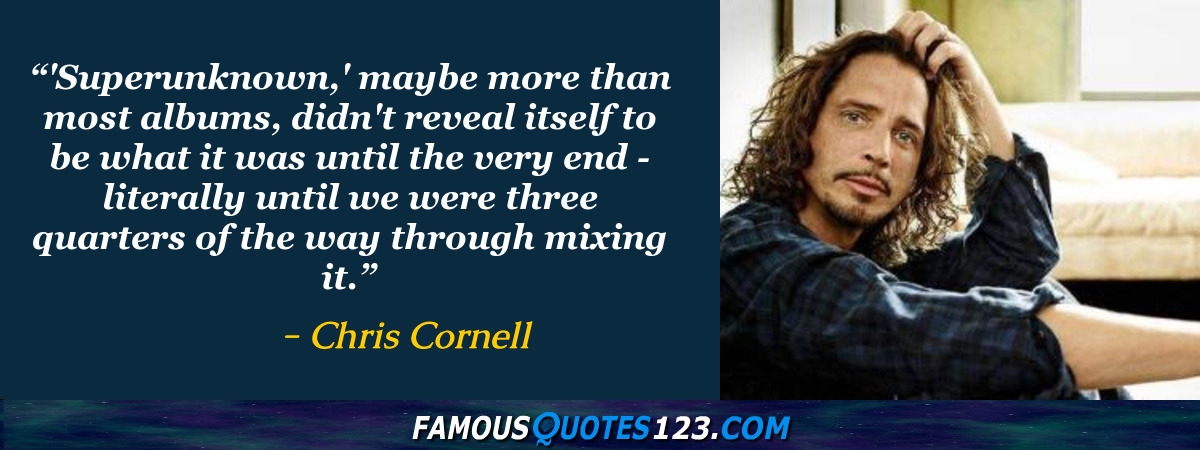
'Superunknown,' maybe more than most albums, didn't reveal itself to be what it was until the very end - literally until we were three quarters of the way through mixing it.
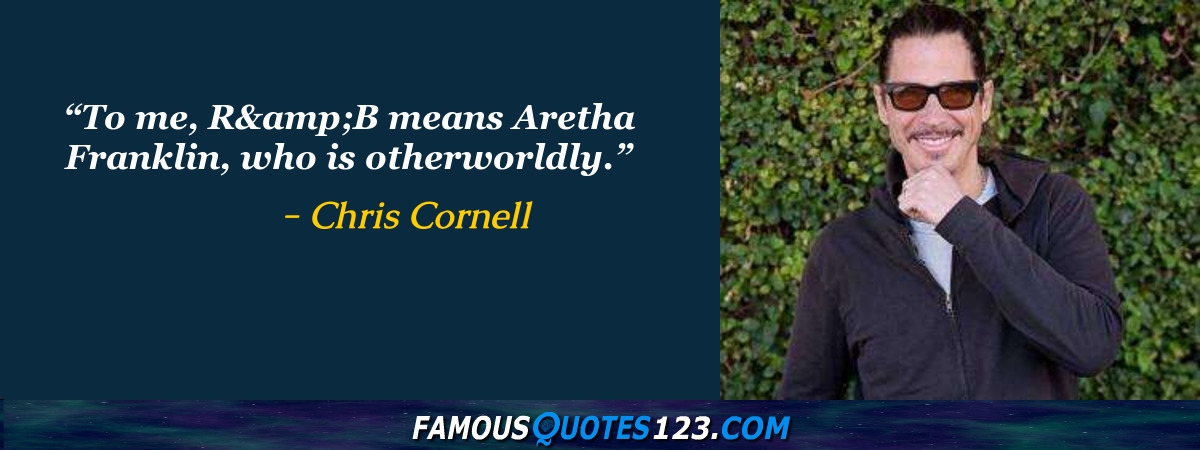
To me, R&B means Aretha Franklin, who is otherworldly.
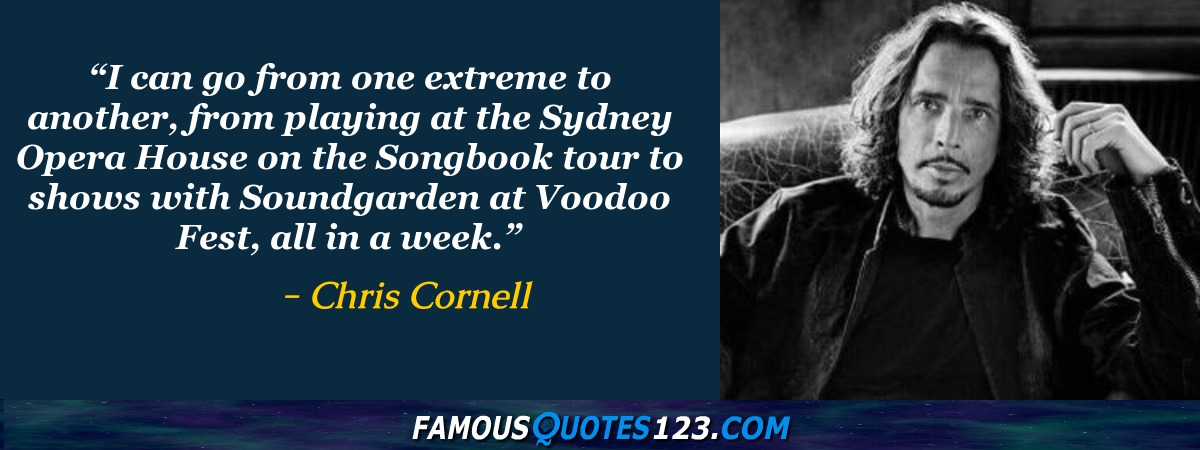
I can go from one extreme to another, from playing at the Sydney Opera House on the Songbook tour to shows with Soundgarden at Voodoo Fest, all in a week.
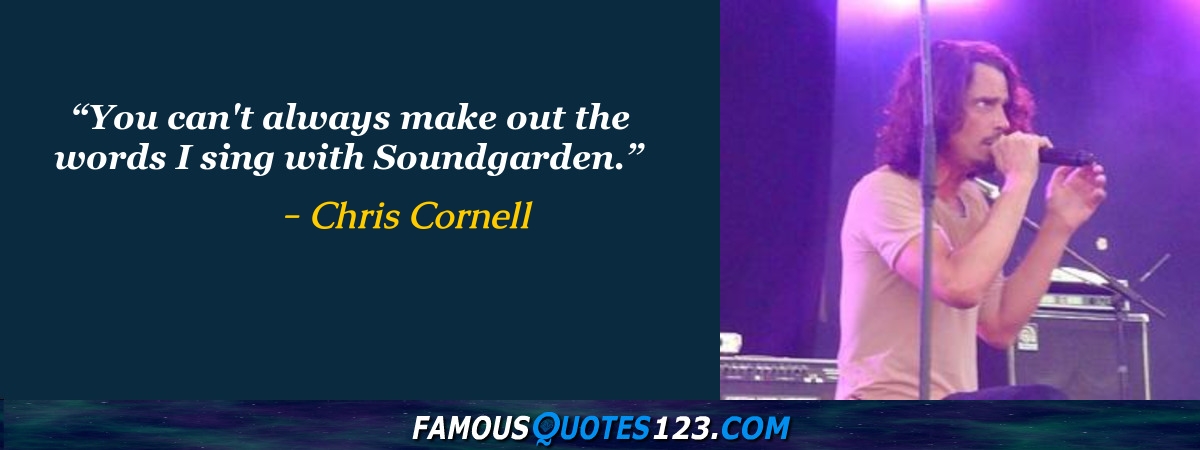
You can't always make out the words I sing with Soundgarden.
I felt very proud to be part of a music scene that was changing the face of commercial music and rock music internationally, but I also felt like it was necessary for Soundgarden - as it was for all of these Seattle bands - to prove that we deserve to be on an international stage, and we weren't just part of a fad that was based on geography.
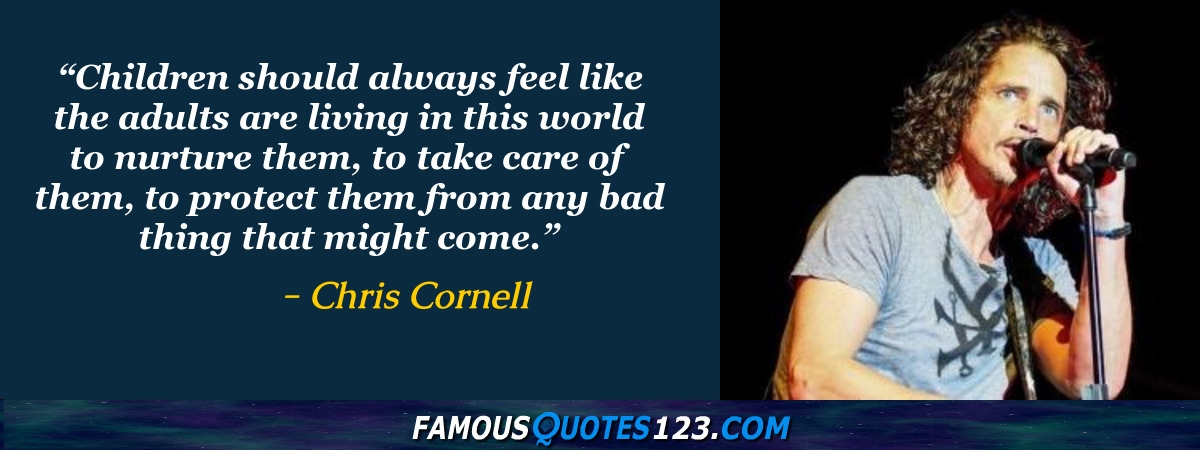
Children should always feel like the adults are living in this world to nurture them, to take care of them, to protect them from any bad thing that might come.
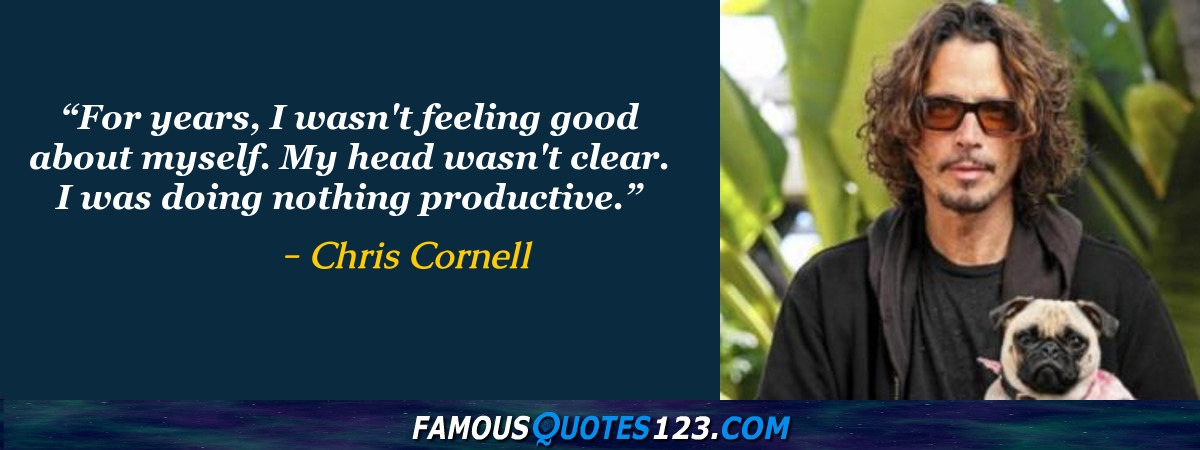
For years, I wasn't feeling good about myself. My head wasn't clear. I was doing nothing productive.
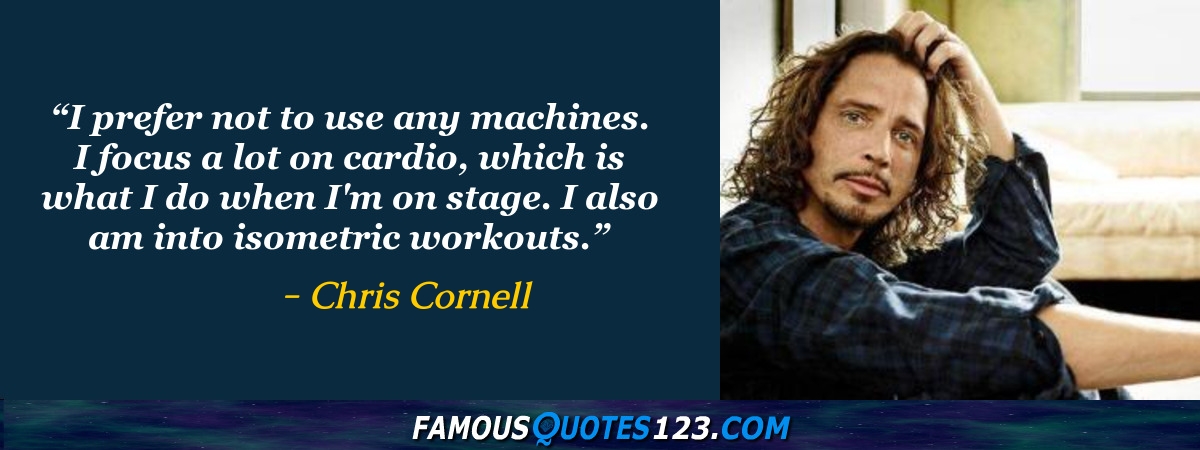
I prefer not to use any machines. I focus a lot on cardio, which is what I do when I'm on stage. I also am into isometric workouts.
They're a great audience, kids. They actually respond. They don't have the references that adults have, so everything is immediate. It's always interesting to see what they react to in whatever I'm working on at the moment. And they don't even want to discuss why. That's a lesson to remember: My son doesn't care about why.
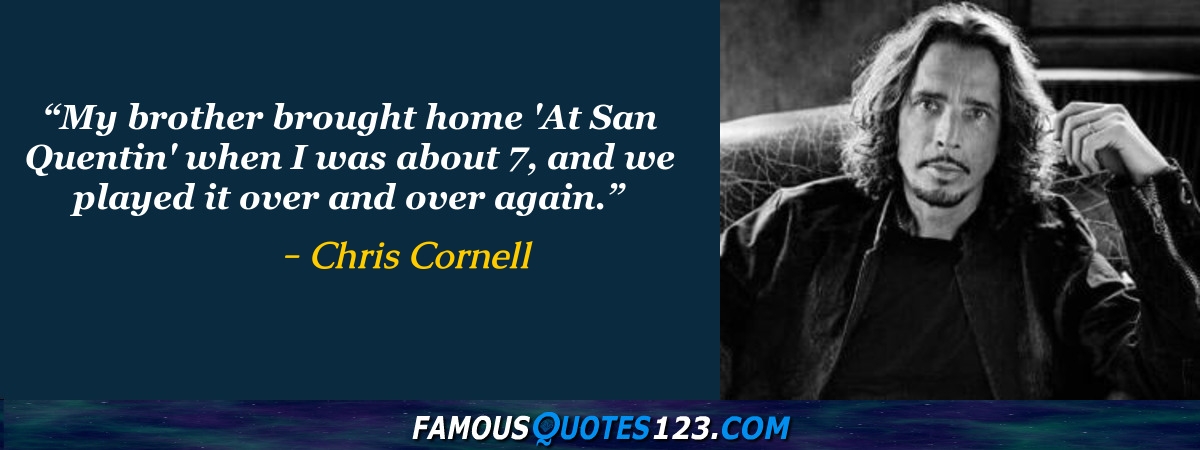
My brother brought home 'At San Quentin' when I was about 7, and we played it over and over again.
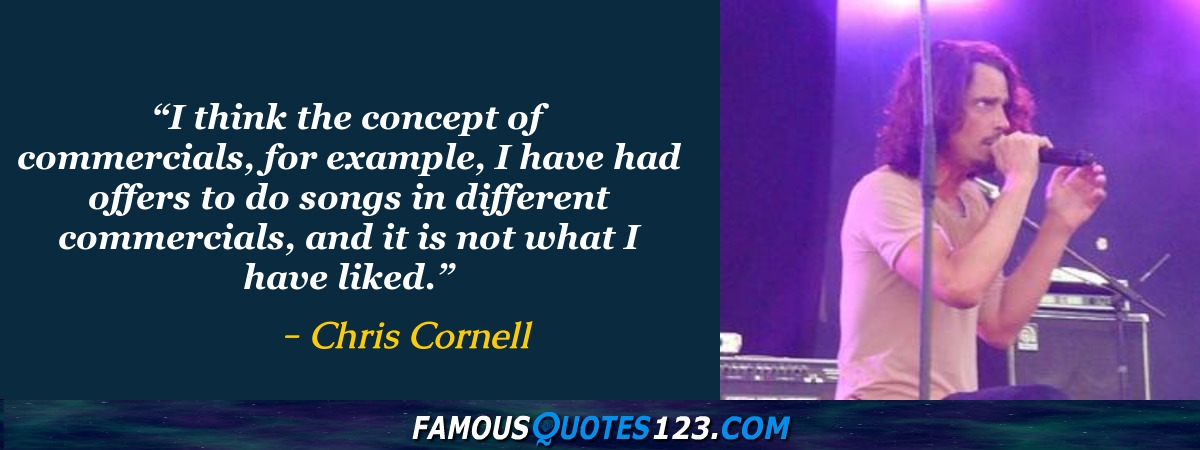
I think the concept of commercials, for example, I have had offers to do songs in different commercials, and it is not what I have liked.
There's this existential argument that comes in, at some point, when you're over-thinking the songwriting process. There's no guarantee that the more time you spend or the more you concentrate on certain aspects that that's going to produce a better result, especially in the arts.
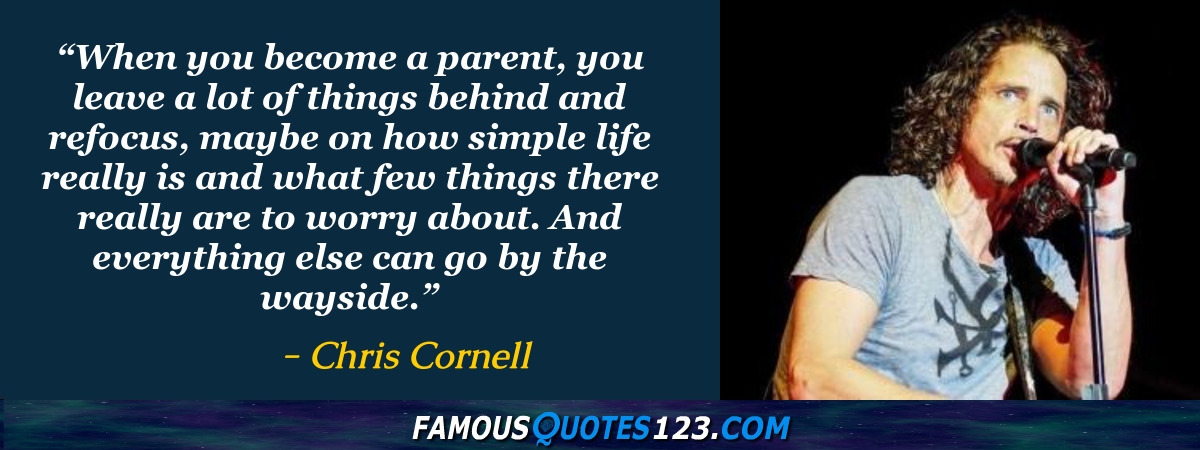
When you become a parent, you leave a lot of things behind and refocus, maybe on how simple life really is and what few things there really are to worry about. And everything else can go by the wayside.
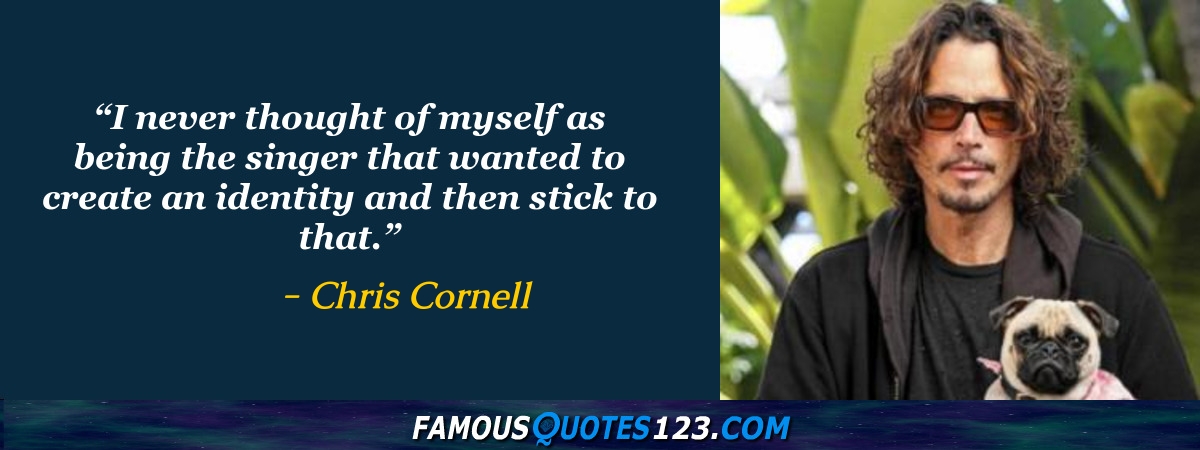
I never thought of myself as being the singer that wanted to create an identity and then stick to that.
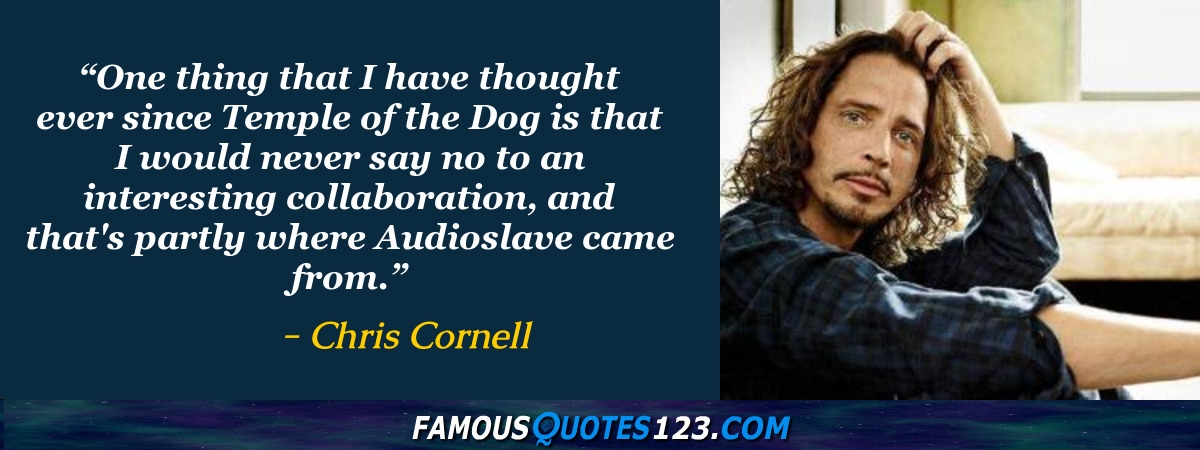
One thing that I have thought ever since Temple of the Dog is that I would never say no to an interesting collaboration, and that's partly where Audioslave came from.
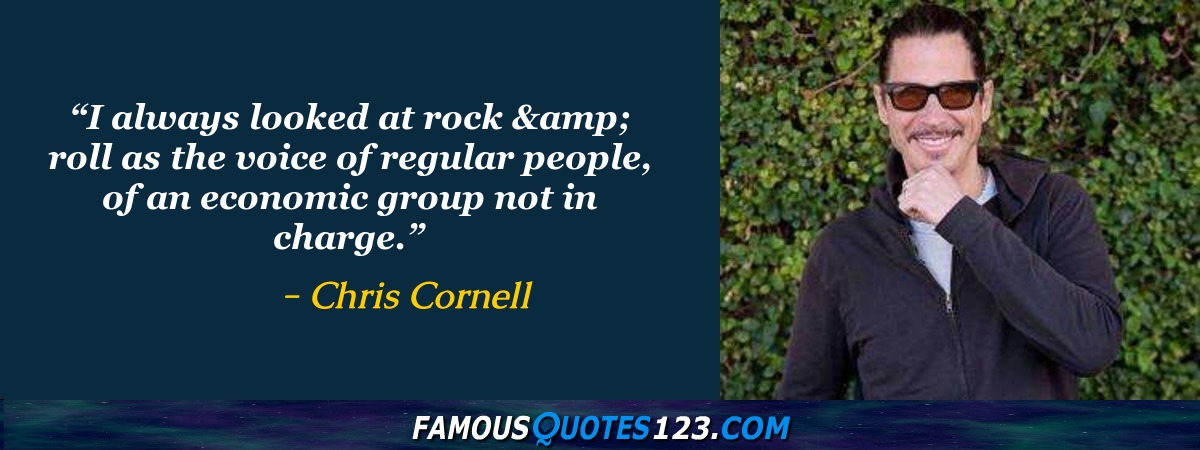
I always looked at rock & roll as the voice of regular people, of an economic group not in charge.
Hip-hop kind of absorbed rock in terms of the attitude and the whole point of why rock was important music. Young people felt like rock music was theirs, from Elvis to the Beatles to the Ramones to Nirvana. This was theirs; it wasn't their parents'. I think hip-hop became the musical style that embraces that mentality.
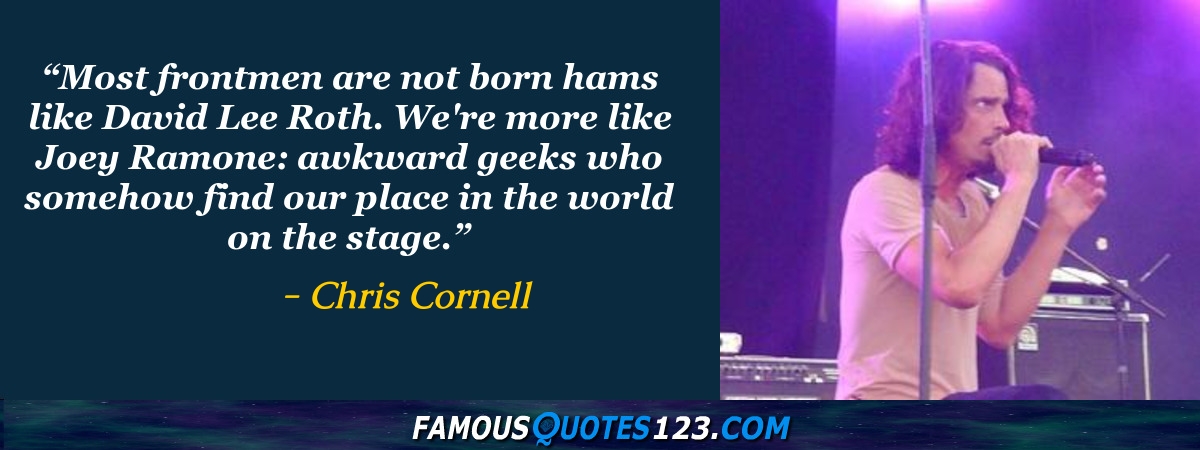
Most frontmen are not born hams like David Lee Roth. We're more like Joey Ramone: awkward geeks who somehow find our place in the world on the stage.
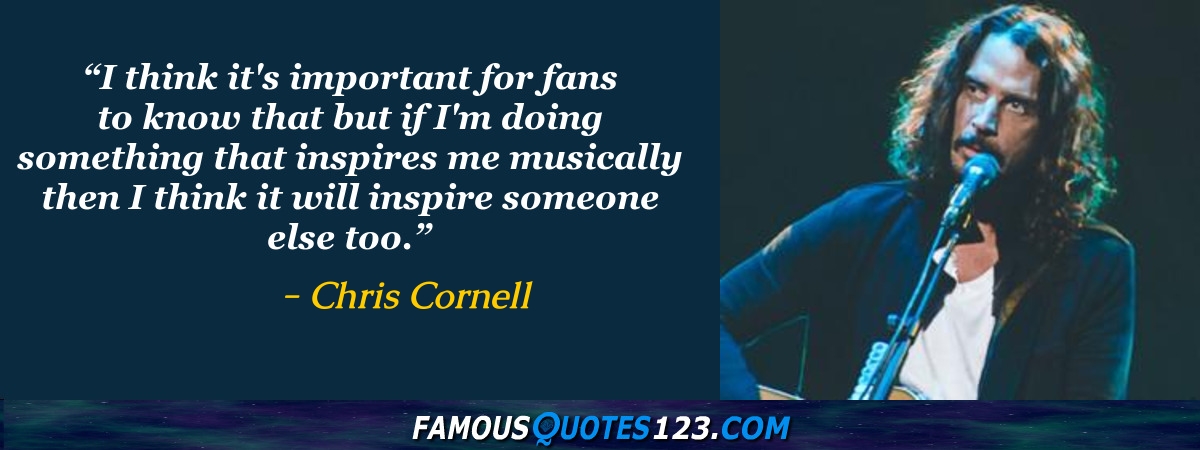
I think it's important for fans to know that but if I'm doing something that inspires me musically then I think it will inspire someone else too.
I just kind of went into the blue-collar workforce at a really young age and discovered music, in terms of being a musician, around the same time. The good news is, I was probably 17 when I knew that's what I was going to do with the rest of my life, no matter what that meant.
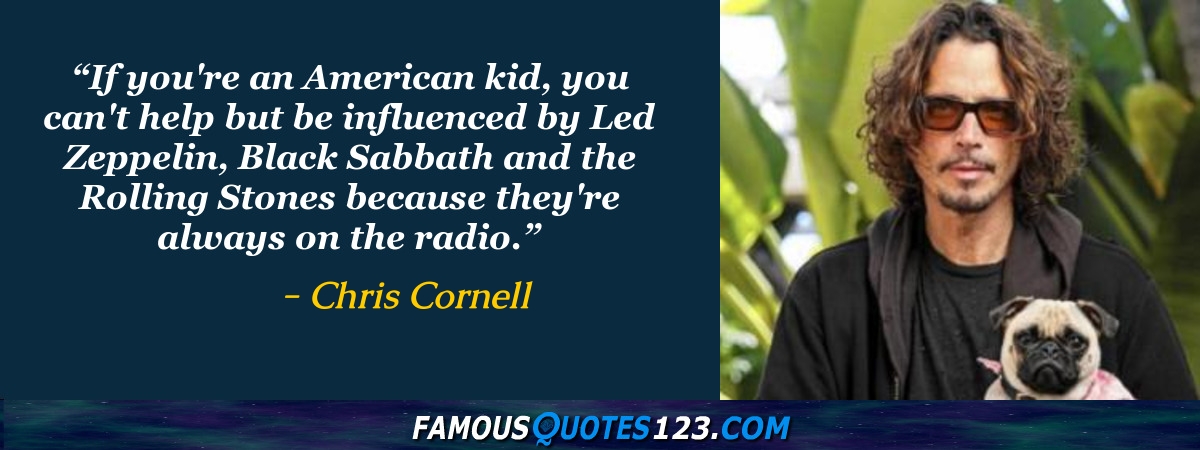
If you're an American kid, you can't help but be influenced by Led Zeppelin, Black Sabbath and the Rolling Stones because they're always on the radio.
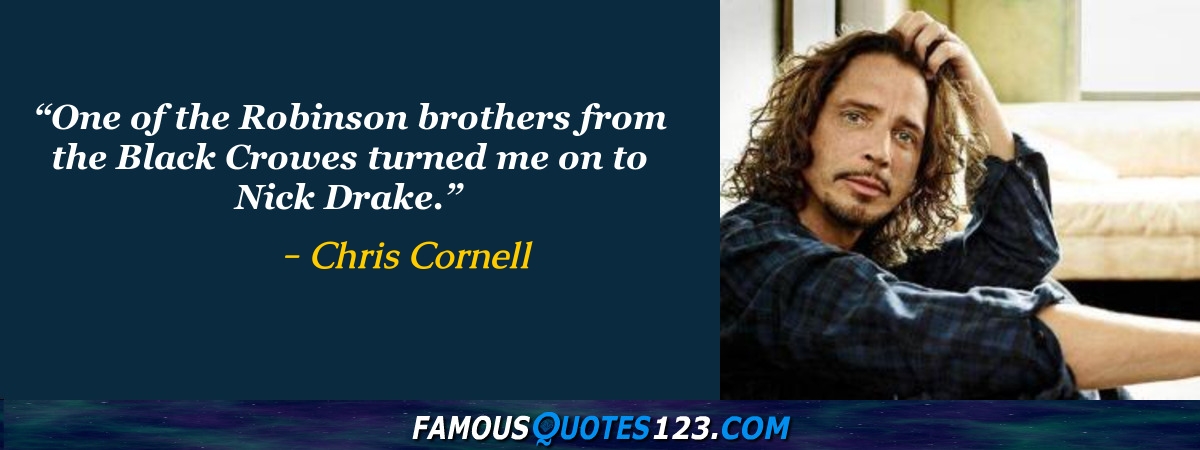
One of the Robinson brothers from the Black Crowes turned me on to Nick Drake.
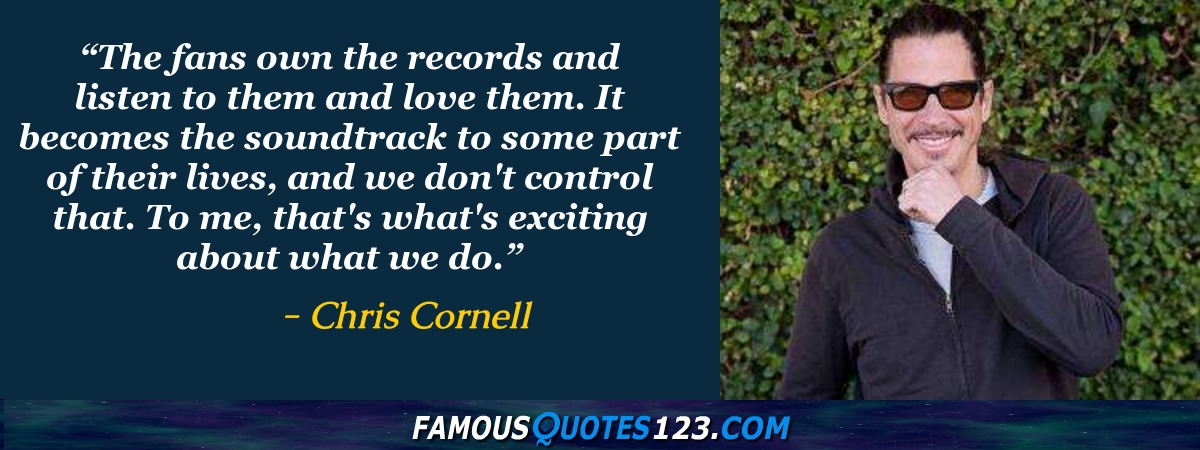
The fans own the records and listen to them and love them. It becomes the soundtrack to some part of their lives, and we don't control that. To me, that's what's exciting about what we do.
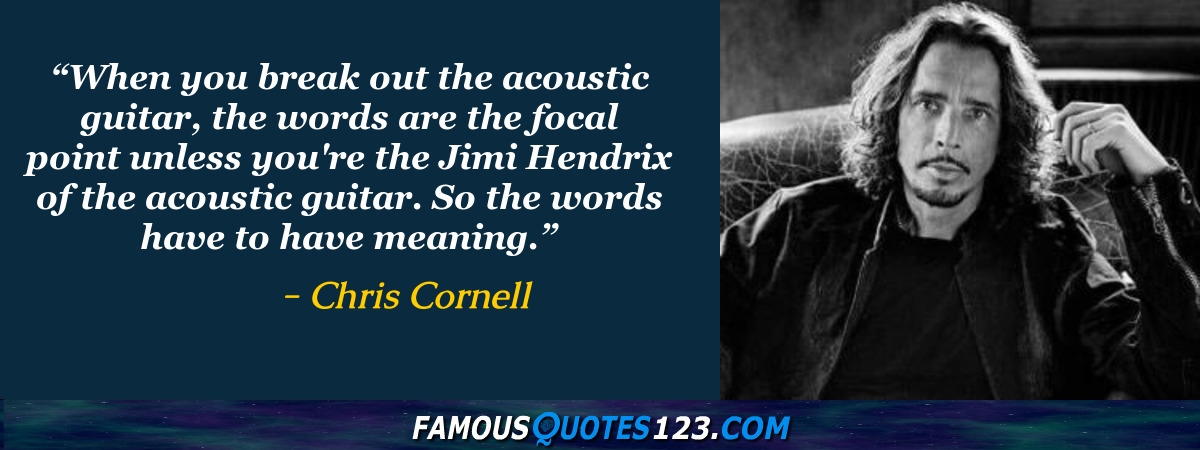
When you break out the acoustic guitar, the words are the focal point unless you're the Jimi Hendrix of the acoustic guitar. So the words have to have meaning.
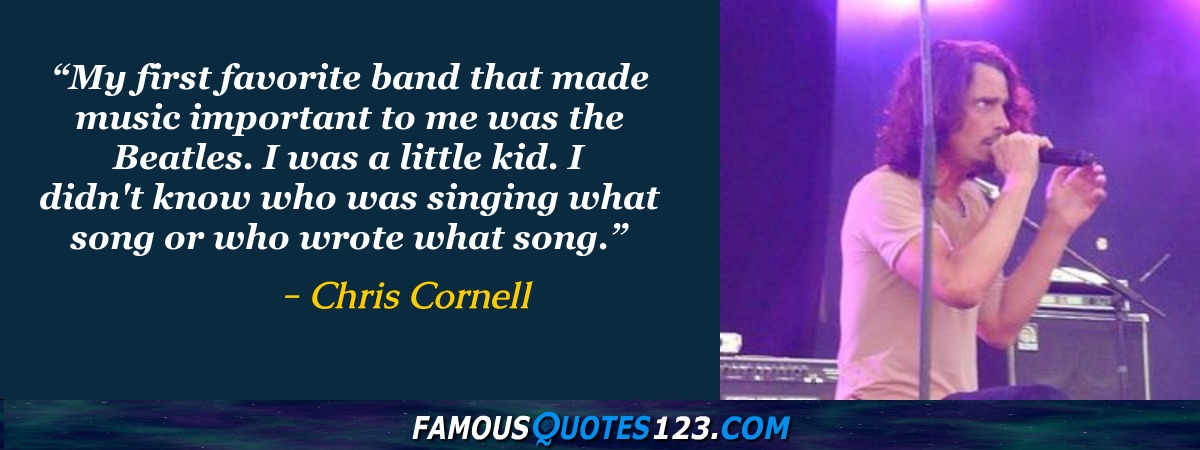
My first favorite band that made music important to me was the Beatles. I was a little kid. I didn't know who was singing what song or who wrote what song.
I would look at older blues musicians who just keep going into their seventies. They keep doing it until they drop dead. And I've always felt like that's what I want to do. I've felt that since the day I was able to start playing music for a living. I don't see the point of thinking about retiring because it's not work to begin with.
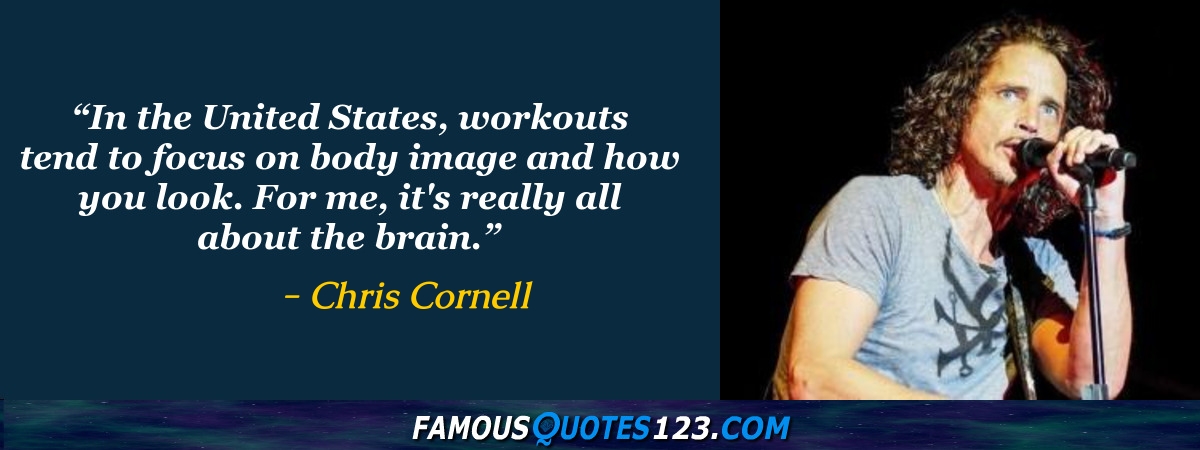
In the United States, workouts tend to focus on body image and how you look. For me, it's really all about the brain.
To a degree, rock fans like to live vicariously and they like that, music fans in general, but when indie music sort of came into prominence in the early '90s, a lot of it was TV-driven, too, where if you saw the first Nirvana video, you're looking at three guys that look like people you go to school with.
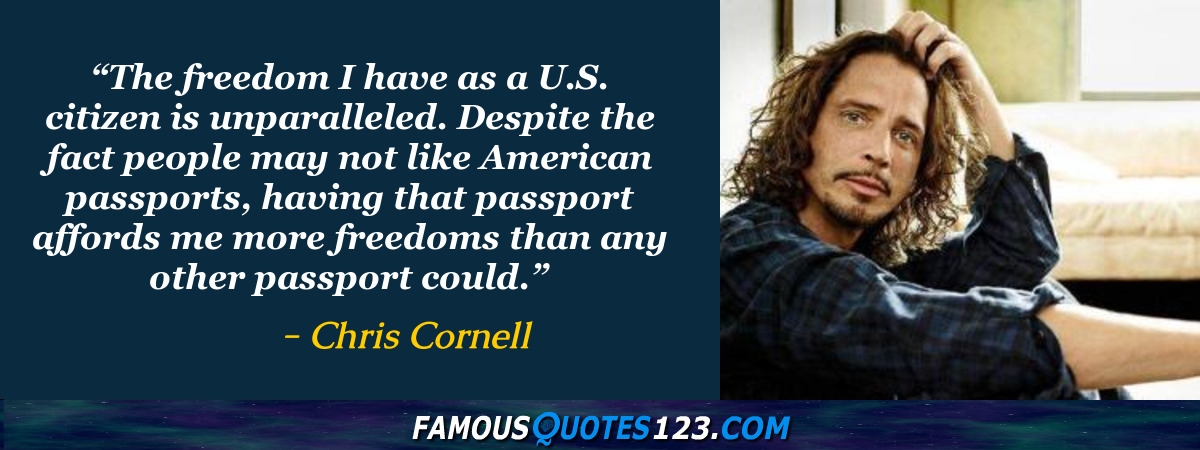
The freedom I have as a U.S. citizen is unparalleled. Despite the fact people may not like American passports, having that passport affords me more freedoms than any other passport could.
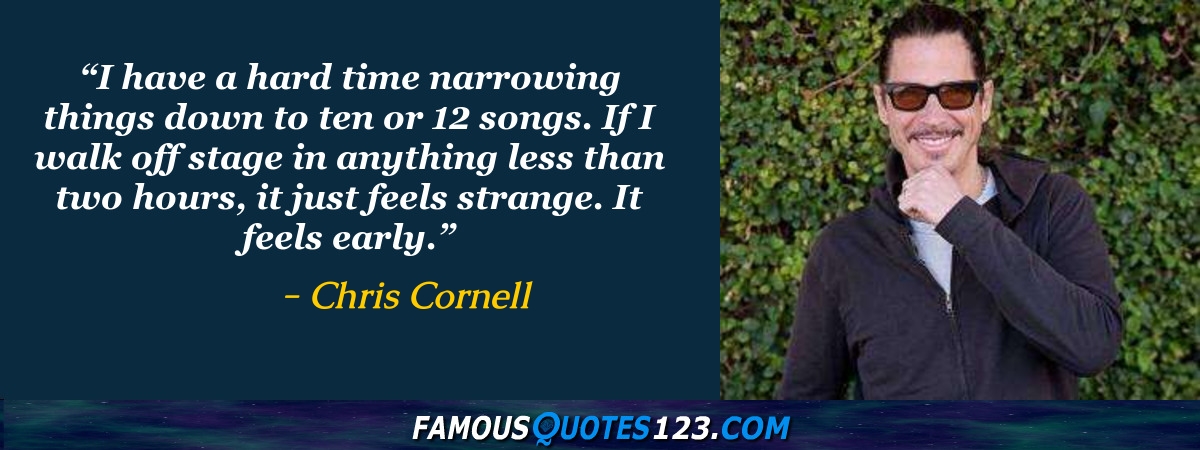
I have a hard time narrowing things down to ten or 12 songs. If I walk off stage in anything less than two hours, it just feels strange. It feels early.
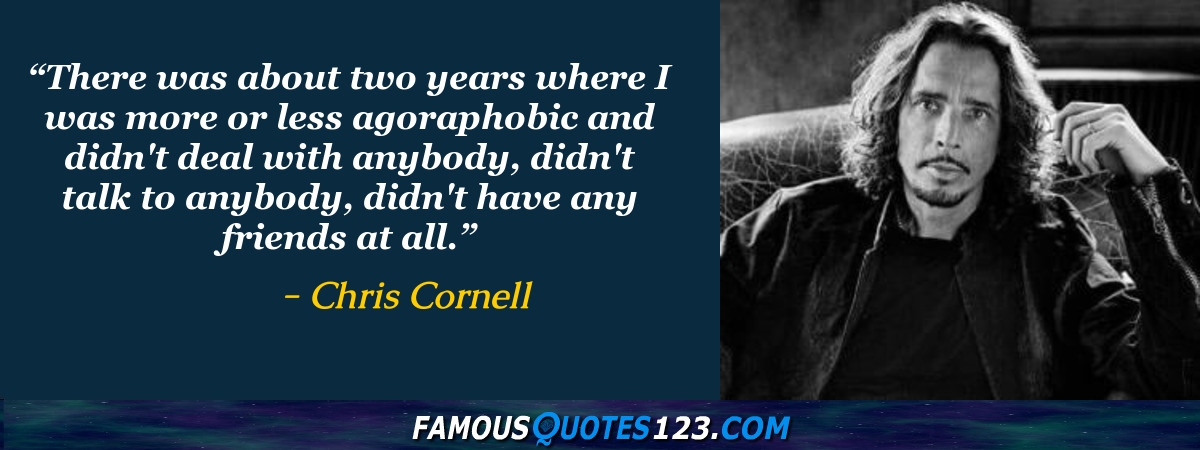
There was about two years where I was more or less agoraphobic and didn't deal with anybody, didn't talk to anybody, didn't have any friends at all.
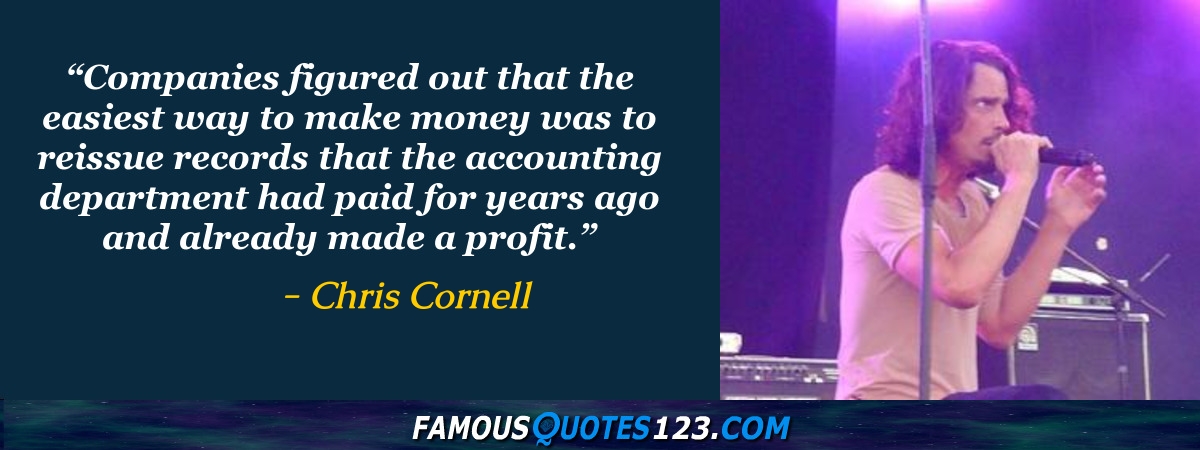
Companies figured out that the easiest way to make money was to reissue records that the accounting department had paid for years ago and already made a profit.
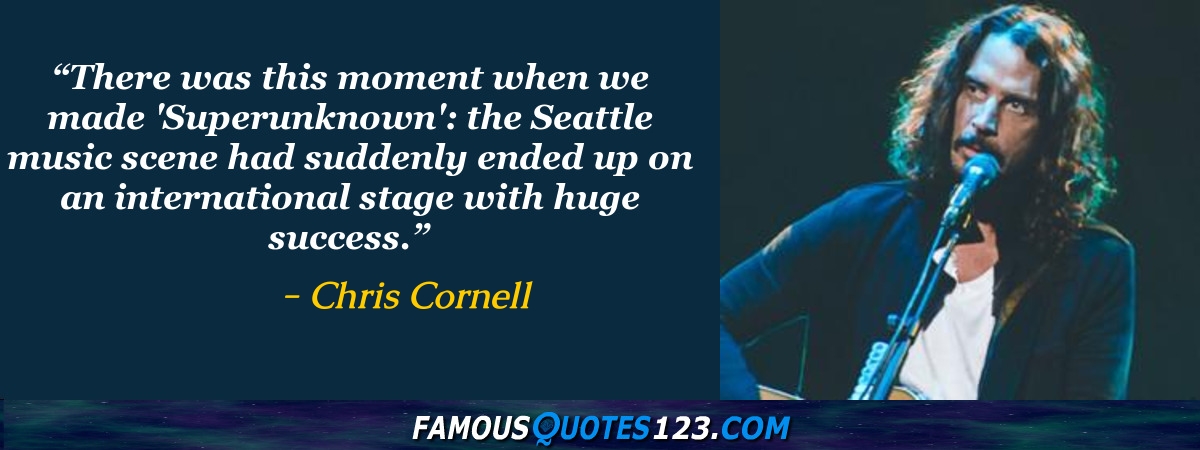
There was this moment when we made 'Superunknown': the Seattle music scene had suddenly ended up on an international stage with huge success.
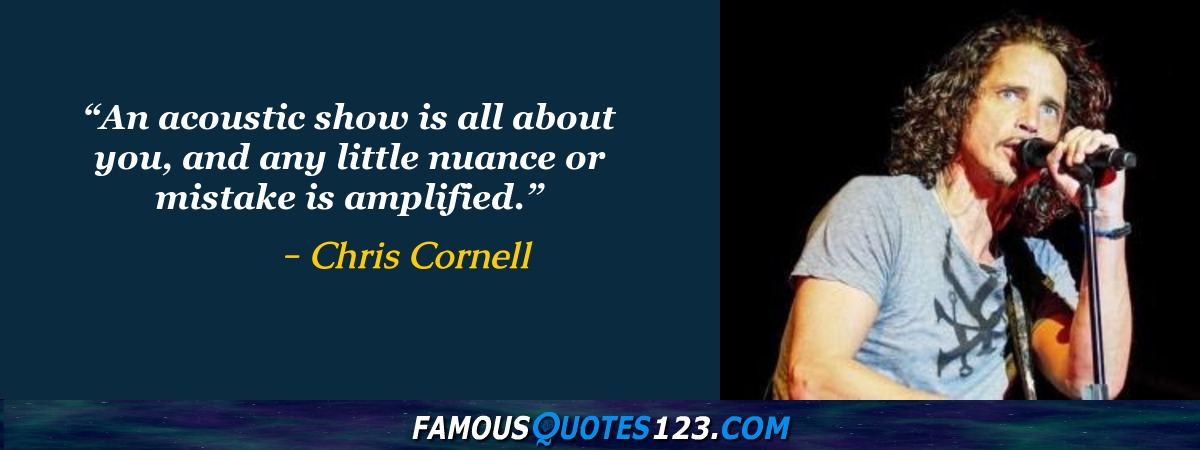
An acoustic show is all about you, and any little nuance or mistake is amplified.
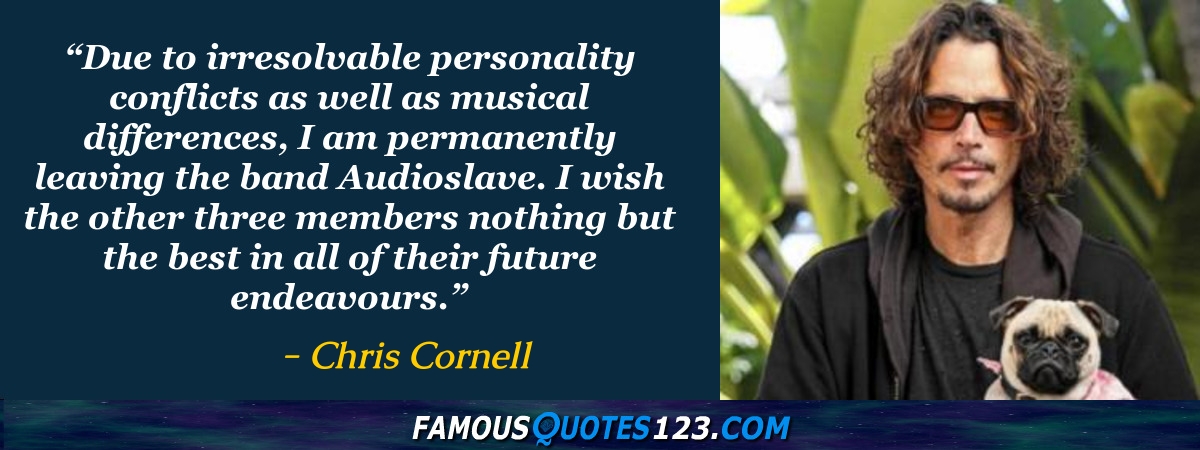
Due to irresolvable personality conflicts as well as musical differences, I am permanently leaving the band Audioslave. I wish the other three members nothing but the best in all of their future endeavours.
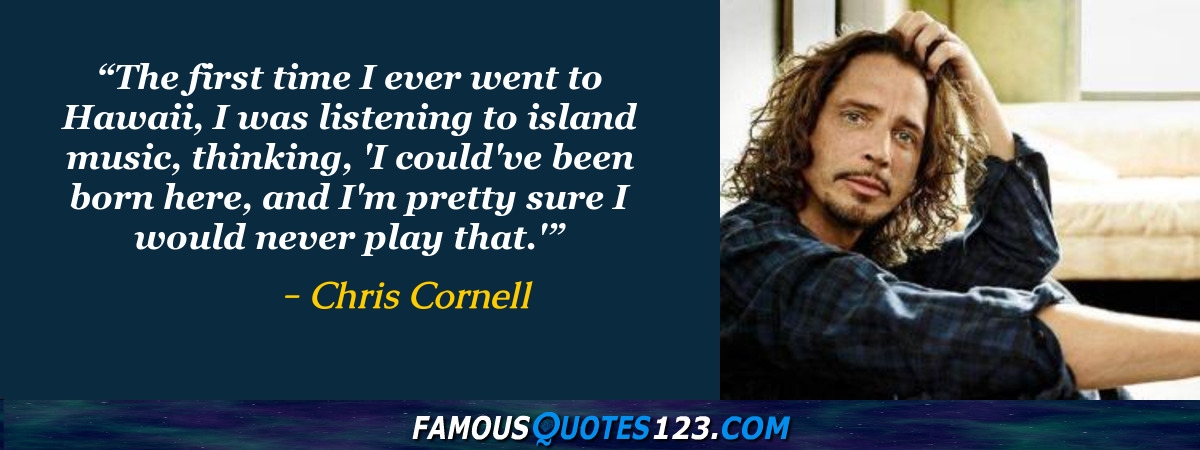
The first time I ever went to Hawaii, I was listening to island music, thinking, 'I could've been born here, and I'm pretty sure I would never play that.'
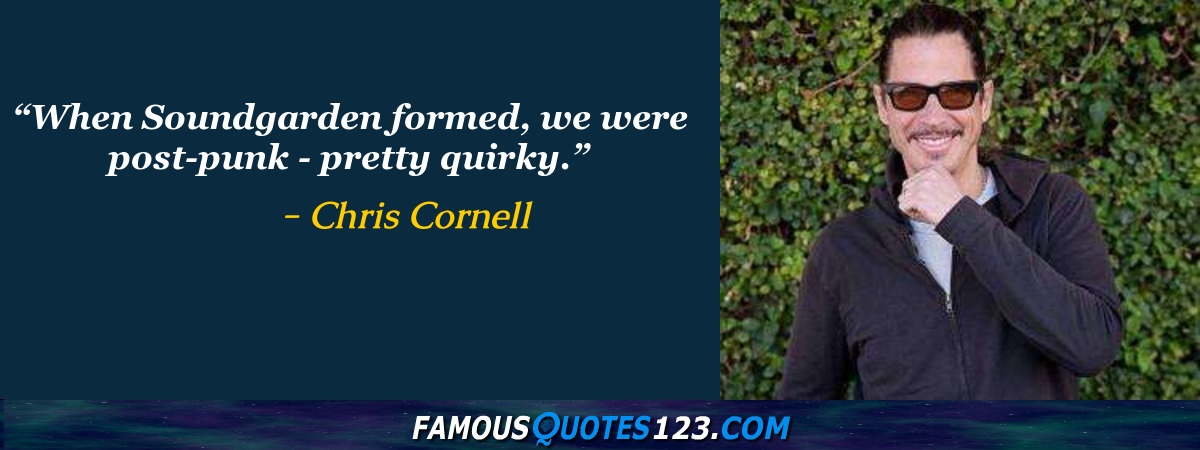
When Soundgarden formed, we were post-punk - pretty quirky.
I really had to come to the conclusion, the sort of humbling conclusion that, guess what, I'm no different than anybody else: I've got to sort of ask for help - not something I ever did, ever. And then part two of that is, like, accept it when it comes, and, you know, believe what people tell me.
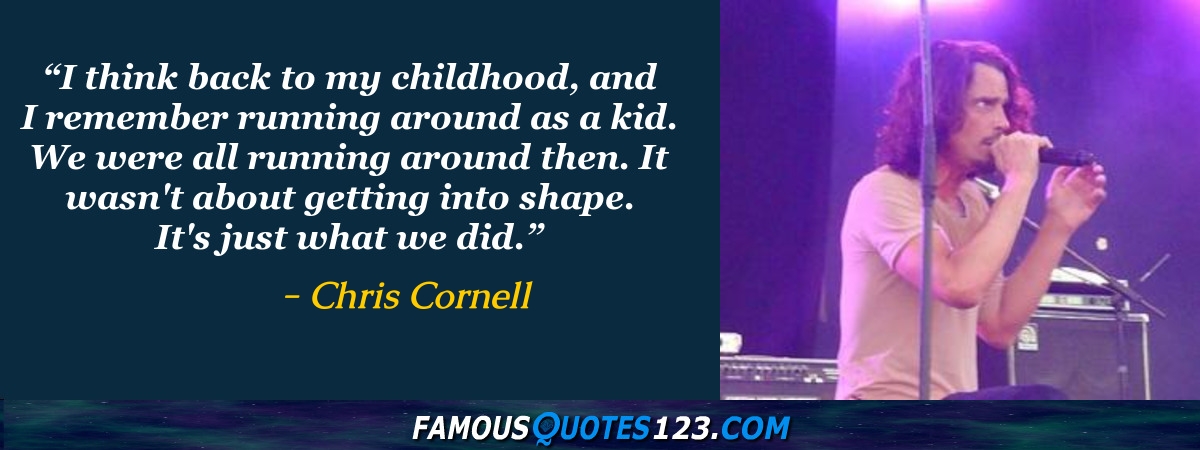
I think back to my childhood, and I remember running around as a kid. We were all running around then. It wasn't about getting into shape. It's just what we did.
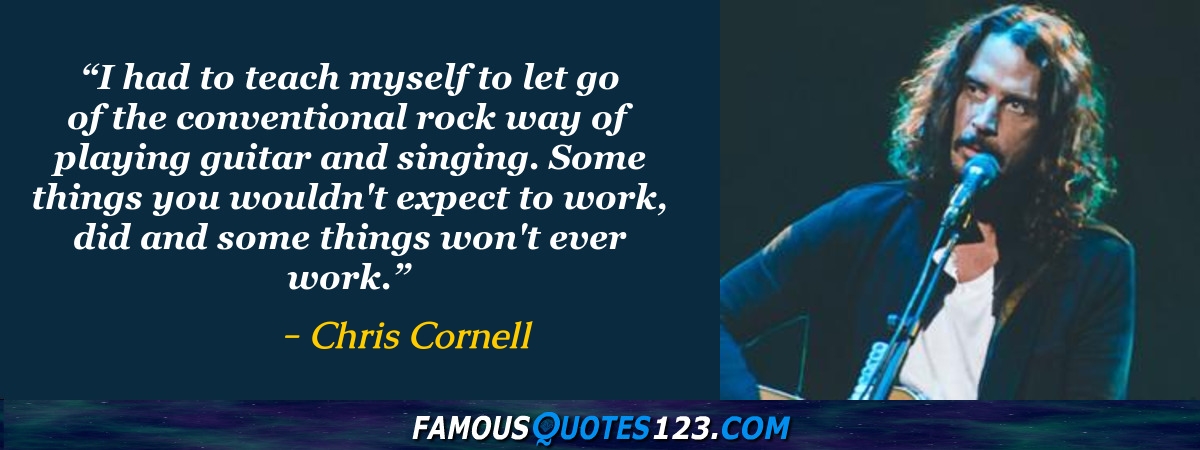
I had to teach myself to let go of the conventional rock way of playing guitar and singing. Some things you wouldn't expect to work, did and some things won't ever work.
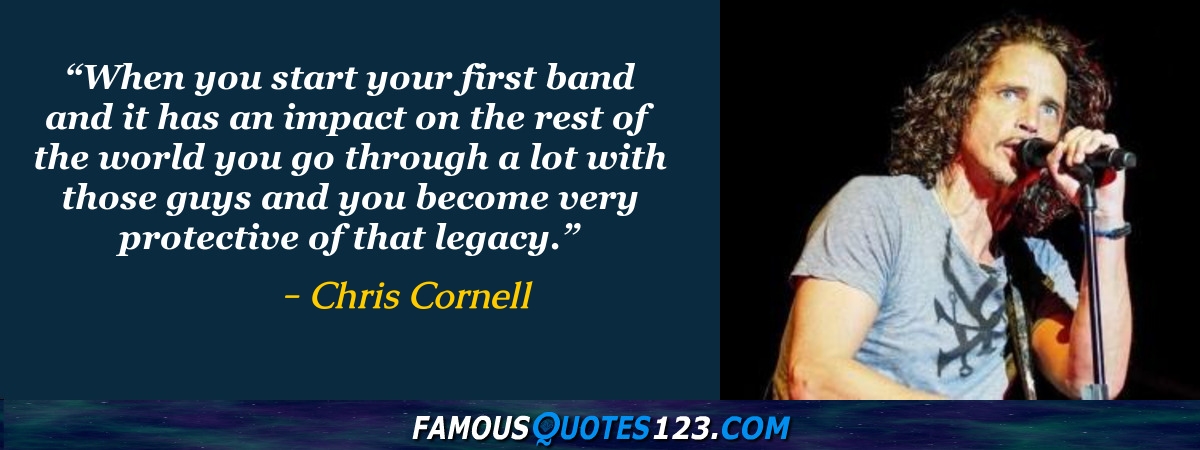
When you start your first band and it has an impact on the rest of the world you go through a lot with those guys and you become very protective of that legacy.
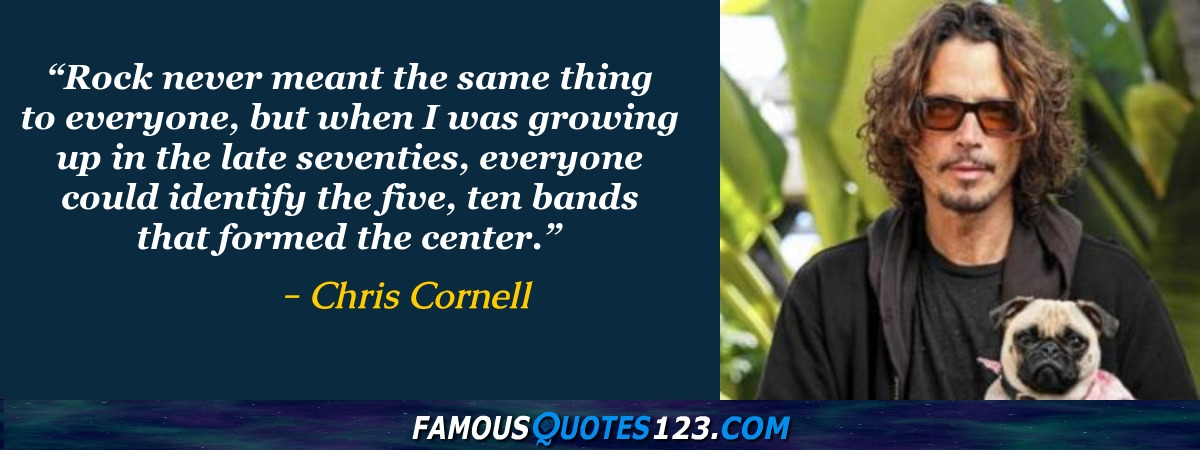
Rock never meant the same thing to everyone, but when I was growing up in the late seventies, everyone could identify the five, ten bands that formed the center.
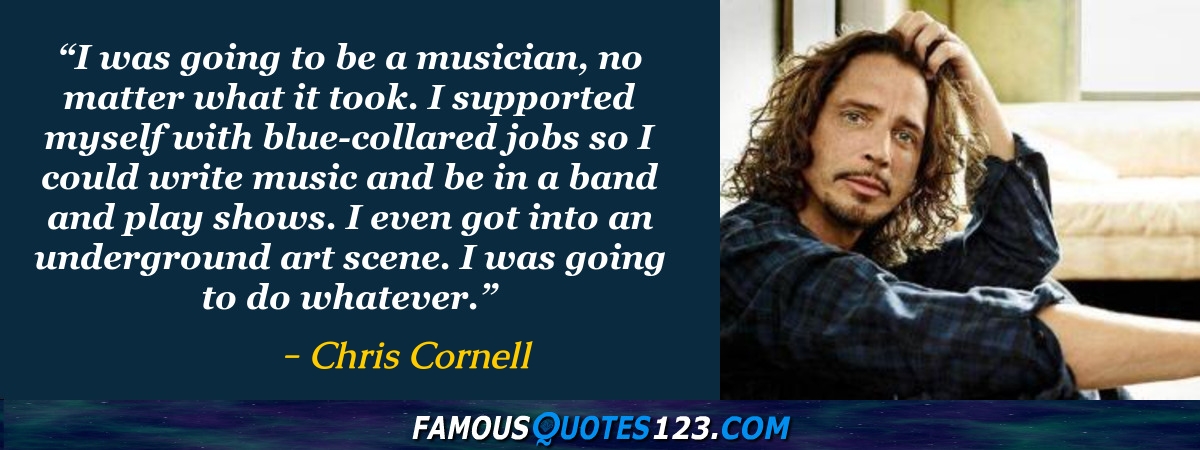
I was going to be a musician, no matter what it took. I supported myself with blue-collared jobs so I could write music and be in a band and play shows. I even got into an underground art scene. I was going to do whatever.
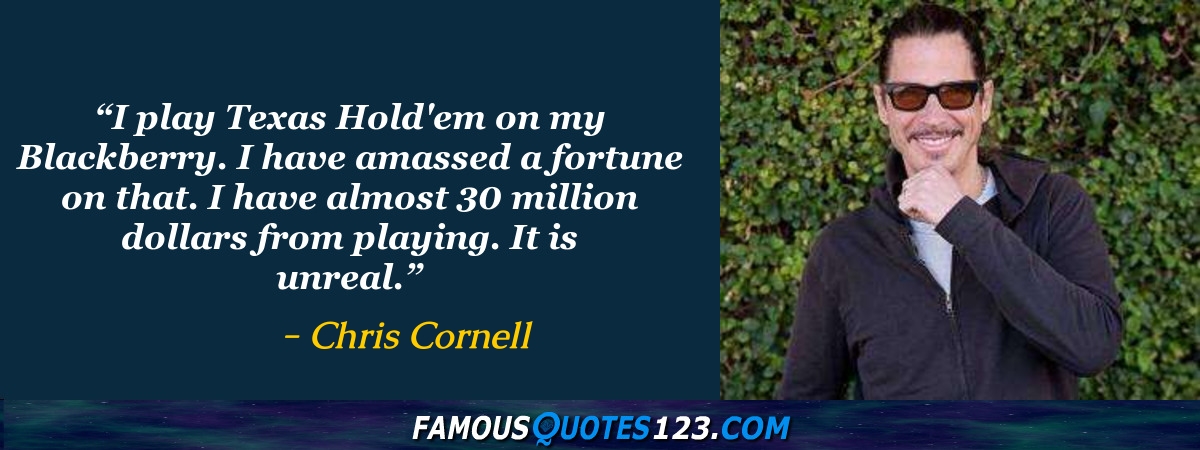
I play Texas Hold'em on my Blackberry. I have amassed a fortune on that. I have almost 30 million dollars from playing. It is unreal.
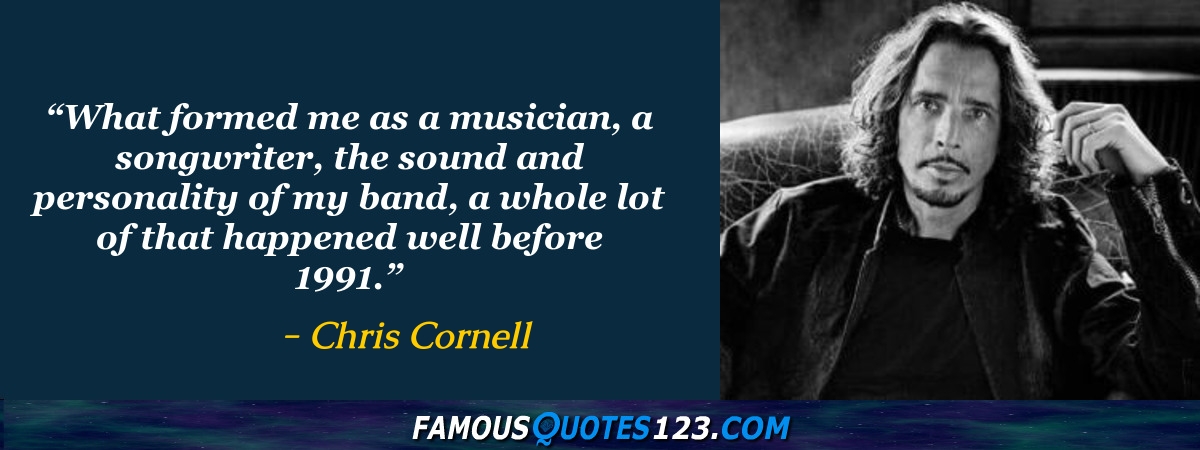
What formed me as a musician, a songwriter, the sound and personality of my band, a whole lot of that happened well before 1991.
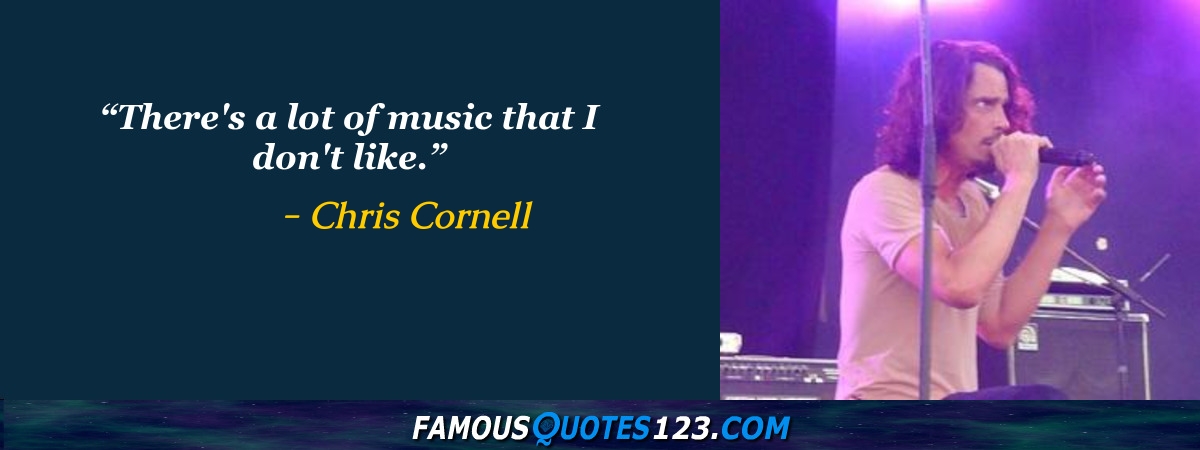
There's a lot of music that I don't like.
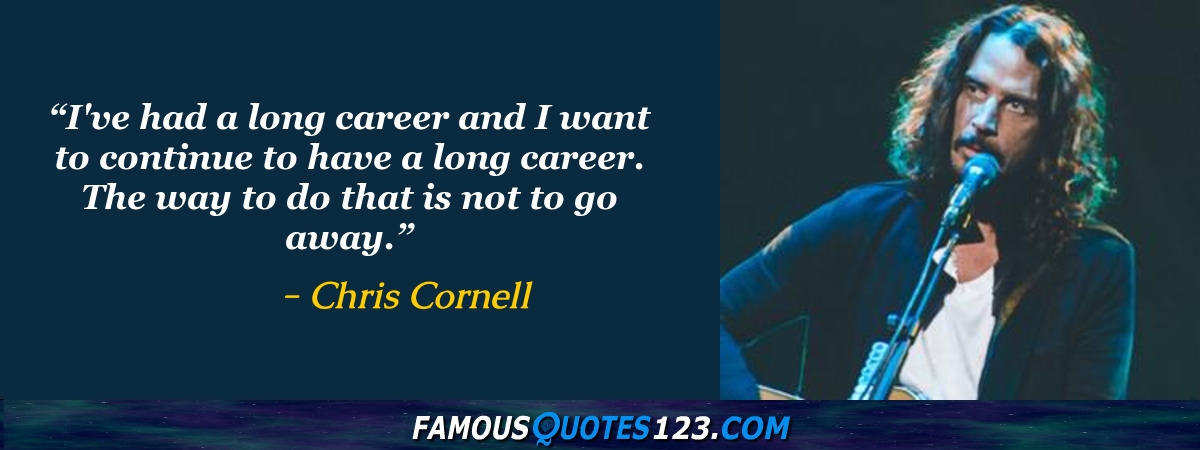
I've had a long career and I want to continue to have a long career. The way to do that is not to go away.
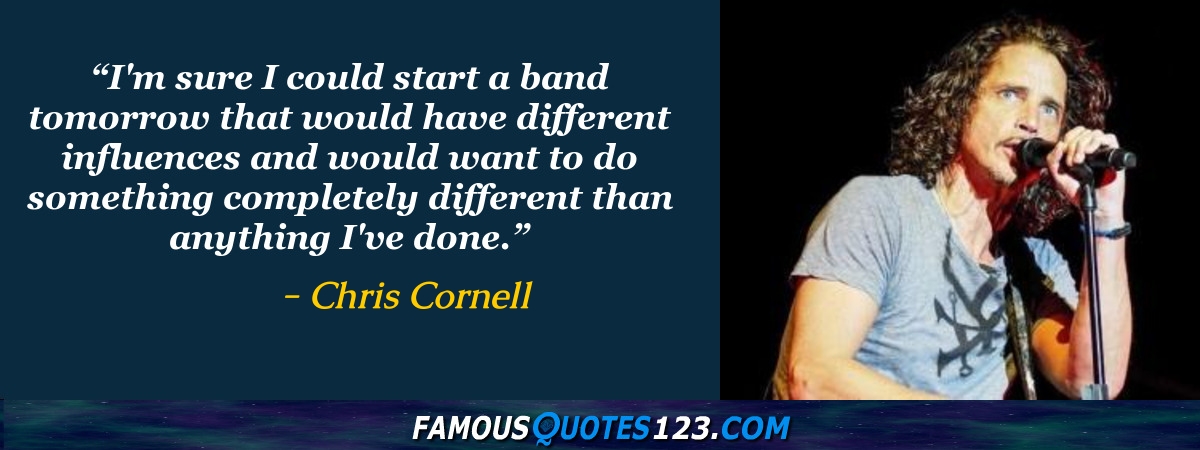
I'm sure I could start a band tomorrow that would have different influences and would want to do something completely different than anything I've done.